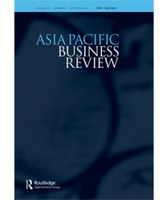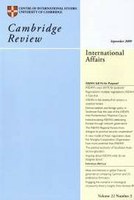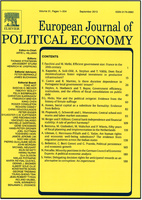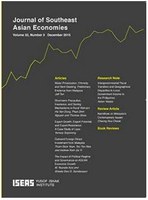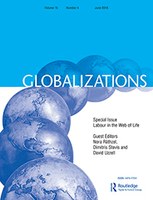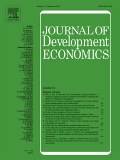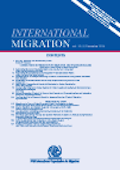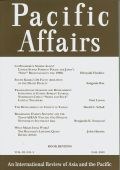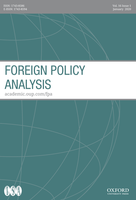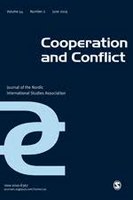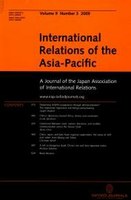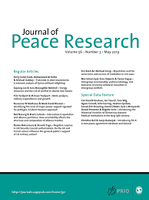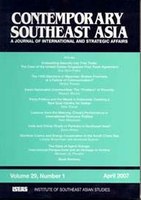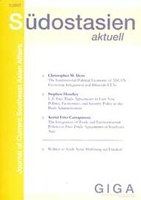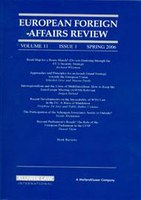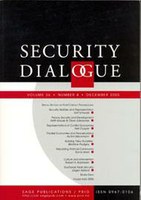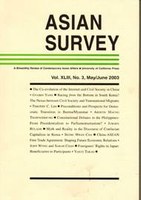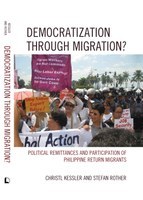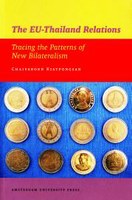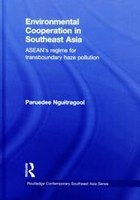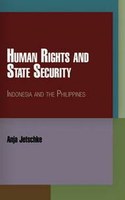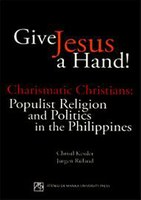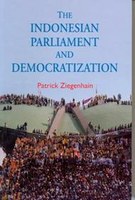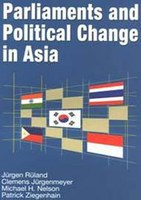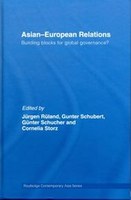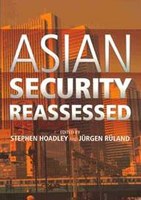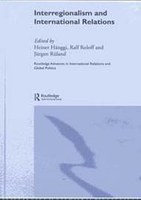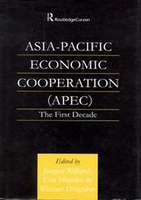Selected Publications
Peer Reviewed Journal Articles
|
Rother, Stefan (2022). The ‘gold standard’ for labour export? The role of civil society in shaping multi-level Philippine migration policies. Third World Quarterly. Online: https://doi.org/10.1080/01436597.2021.2015314. The Philippines has received continuous praise for its ‘highly developed’ migration policies and promotes those as the ‘gold standard’ for the deployment and protection of labour migrants. These policies are obviously not negotiated exclusively within the container of the nation state. In this article, I will therefore employ an analytical framework for the politics of migration policies that is multi-stakeholder and multi-level. The multiple levels discussed will reach from the national/transnational to the regional/transregional (Association of Southeast Asian Nations – ASEAN, Colombo Process, Abu Dhabi Dialogue) and global (Global Forum on Migration and Development – GFMD, Global Compact) level. Major stakeholders addressed are the nation state(s) involved, the migration industry and migrant civil society. In particular, migrant civil society has a long tradition of engagement in the Philippines and mirrors the multiple levels of government engagement to further its advocacy. My main argument is therefore that regardless of the political regime in place, and despite internal fractions and cleavages, migrant civil society has been a constant and major contributing factor to the ‘gold standard’ of Philippine migration policies. |
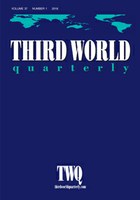 |
|
Rodriguez, Fabricio / Rüland, Jürgen (2022). Cooperative counter‑hegemony, interregionalism and “diminished multilateralism.” The Belt and Road Initiative and China’s relations with Latin America and the Caribbean (LAC). International Relations and Development 25: 476-496. This article examines the institutional rationale of China’s Belt and Road Initiative for Sino-Latin American interregionalism and global multilateralism. Applying Pedersen’s ideational-institutional realism approach and research on interregionalism, we provide a more nuanced analysis than mainstream realist theorising dominating research on China’s foreign policies. We argue that China’s interregional relations with Latin America and the Caribbean (LAC) entail a cooperative strategy to counter US hegemony in its own ‘backyard’. At a cognitive level, we show that the worldviews of Chinese foreign policy elites are informed by the tenets of realism. At an institutional level, interregionalism serves as a soft balancing device. In the power dimension, China uses cooperative relations with LAC to create soft power, enhancing access to raw materials, and promoting Chinese values, worldviews, and policies to the region. Hence, China-LAC interregionalism qualifies as ‘diminished multilateralism’, a pragmatic variant of multilateralism that favours particularistic interests while hampering collective problem solving. |
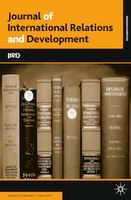 |
|
Panke, Diana / Rüland, Jürgen (2021). Why Asian states cooperate in regional arrangements: Asian regionalism in comparative perspective. International Relations. Online: https://doi.org/10.1177%2F00471178211028970 Regional cooperation in Asia takes place in formal Regional Organizations (ROs) as well as in less formal Regional Fora (RF). In addition, unlike in other parts of the world, Asian regionalism mainly developed in one instead of two waves. Especially after the end of the Cold War, Asian countries created numerous ROs and RF. Over time, Asian states became members of several ROs and RF at the same time, thereby contributing to Asian regime complexity. Given that multiple memberships in regional cooperation agreements can place high demands on diplomatic and financial resources of member states, the fact that Asian states became members in between one and 17 ROs and RF is puzzling. This article investigates why Asian countries join regional cooperation agreements. Based on a theory-guided empirical analysis that combines quantitative and qualitative methods, it argues that hedging and economic interests are the main driving forces behind Asian regionalism and that these motivations are often interlinked. |
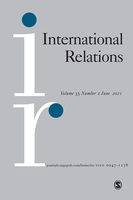 |
|
Rüland, Jürgen (2021). Covid-19 and ASEAN: Strengthening State-centrism, Eroding Inclusiveness, Testing Cohesion. The International Spectator 56 (2): 72-92. The Association of Southeast Asian Nations (ASEAN) has responded to the Covid-19 crisis in a path-dependent way. The latter is shaped by a time-tested repository of cooperation norms, which give precedence to national sovereignty. Hence, belated, ad hoc and largely declaratory collective responses to the Covid-19 crisis are business as usual and are unlikely to have disruptive effects on ASEAN’s operations. Yet member countries’ emergency measures are intensifying ongoing processes of democratic backsliding and will have negative repercussions on the grouping’s inclusiveness. They will impair advancements towards a people-oriented ASEAN. Regional cohesion will be further jeopardised by relations with China, which have intensified due to Chinese “mask diplomacy”, but are also increasingly influenced by China’s encroachments on ASEAN member states’ claims in the contested South China Sea. |
 |
|
Gonschorek, Gerrit J. (2021). Subnational favoritism in development grant allocations: Empirical evidence from decentralized Indonesia. World Development 139: 105299. Are public grant allocations biased toward the birth districts of governors, and, if so, what explains this favoritism? The allocation of budget authority to local government officials is a common trend around the developing world, but it is often criticized for transferring favoritism from the center to lower government levels. Using a unique panel data set of 410 Indonesian districts for the period 2005–2013, I exploit the discretionary nature of a government grant and data from a large amount of asynchronous local direct elections to investigate whether the birthplace of the provincial governor determines fund allocation to the district level. I show that birth districts of incumbent governors receive significantly larger shares of discretionary grants compared with the other districts within a province. I find that local favoritism is driven by governors with political history in the district office of their birth district and is limited by local electoral accountability. Classical pork-barrel politics, however, as reelection motives or formal political party ties to the district administration, do not explain local favoritism. These results illustrate the importance of non-discretionary institutional grant design and local democratization reforms in Indonesia’s political system. The country is a young democracy characterized by low ideological cleavages, little party loyalty, and the prevalence of money politics in its decentralized fiscal system. These features characterize a number of developing countries, yet contrast sharply to the established democracies for which subnational favoritism has been analyzed. |
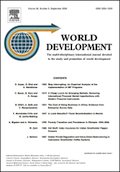 |
|
Rüland, Jürgen (2021). Democratic backsliding, regional governance and foreign policymaking in Southeast Asia: ASEAN, Indonesia and the Philippines. Democratization 28 (1): 237-257. This article examines democratic backsliding in the spheres of regional cooperation and foreign policymaking in Southeast Asia. It argues that backsliding is limited because the space for the Association of Southeast Asian Nations (ASEAN) and its member states to promote democracy has always been strongly curtailed by ideational path dependencies. These include an autocratic type of regional corporatism and the ASEAN Way as the region’s established repository of cooperation norms. While ASEAN has thus largely failed to become more inclusive, democracy promotion policies of the grouping’s democratically most advanced member states, Indonesia and the Philippines, are more ambiguous. Despite eroding democratic practices at home, democracy is still a pillar of Indonesia’s foreign policy. By contrast, in the Philippines, the incumbent Duterte presidency increasingly securitizes foreign policy, relegating democracy to a backseat. |
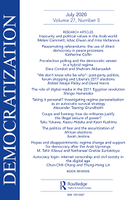 |
|
Rüland, Jürgen (2020). Old Wine in New Bottles? How Competitive Connectivity Revitalises an Obsolete Development Agenda in Asia. Journal of Contemporary Asia 50 (4): 653-665. In Asia “connectivity” is celebrated as a panacea to kick-start rapid economic growth in the region’s less developed countries. In the process, China and Japan, but also India, Thailand and South Korea, have become major donors and investors in physical infrastructure. While infrastructure is an important facilitator of economic growth, it must be sustainable. This commentary argues that this is not the case in the current infrastructure drive. Many large-scale projects have unacceptably high social costs. This is due to the fact that in the implementation of connectivity schemes, Asian donors are guided by their experiences during their own phase of rapid development. These experiences are strongly influenced by the developmental state and authoritarian variants of modernisation theory. These are outdated concepts with the inherent danger of initiating a downward spiral in project quality, notwithstanding reassurances of the donors to be committed to quality infrastructure. |
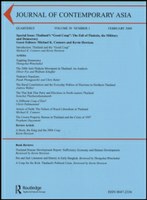 |
|
Müller, Lukas Maximilian (2020). Challenges to ASEAN centrality and hedging in connectivity governance—regional and national pressure points. The Pacific Review. Online first: https://doi.org/10.1080/09512748.2020.1757741. Since 2010, ASEAN has made efforts to increase its coherence and visibility as an actor in regional infrastructure development, under the umbrella term of connectivity. Its most recent strategy, 2016’s Master Plan on ASEAN Connectivity 2025, is notable for its more focused agenda as well as a tableau of institutional innovations, including new policy coordination mechanisms and a project preparation pipeline. Nonetheless, ASEAN struggles to maintain coherence in the implementation of its connectivity agenda, both internally as well as towards its dialogue partners. Utilizing the concepts of centrality and hedging as parts of a unified theoretical framework, this paper analyzes ASEAN’s efforts to mobilize and manage external resources in connectivity. ASEAN’s resource dependence and its failure to establish institutional centrality creates issues at the regional and the national levels. Regionally, ASEAN’s lack of centrality and its perpetuation of ASEAN+1 relations have contributed to the emergence of contesting agendas and institutional frameworks by external actors. Nationally, the hedging strategies of ASEAN member states are at odds with the regional vision, highlighting a lack of intra-ASEAN coherence. The perpetuation of contesting institutional frameworks by external actors at the national level solidifies existing incoherence in ASEAN’s connectivity governance, further undermining its centrality. ASEAN’s efforts to assert centrality and execute a hedging strategy in connectivity are emblematic of its attempts to extend its reach into new policy areas, but also of its persistent governance constraints. |
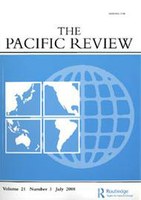 |
|
Missbach, Antje / Palmer, Wayne (2020). People smuggling by a different name: Australia's ‘turnbacks’ of asylum seekers to Indonesia. Australian Journal of International Affairs 74 (2): 185-206. The decline in the smuggling of people from Indonesia to Australia since late 2013 is primarily attributable to unilateral deterrence policies under Australia's Operation Sovereign Borders. When seeking to prevent asylum seekers from coming to Australia to enjoy the right to asylum there, the Australian government has tested a number of deterrent mechanisms that sometimes border on illegality and even state crime. In May 2015, for example, Australian authorities intercepted an Indonesian boat carrying 65 asylum seekers and allegedly paid the six smugglers to return their passengers to Indonesia. In this article, we reconstruct what happened at sea, and put forward a number of arguments that categorise this ‘turnback’ as explicitly-commissioned people smuggling against Indonesia. Our article also points to further implications about looming risks if the policy was to be employed more widely by states in other areas of the world where people cross the sea to seek asylum. Not only would the practice severely undermine international collaborations that have developed to prevent and combat people smuggling, but it would also create additional safety risks for those who are turned back. |
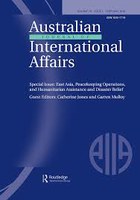 |
|
Missbach, Antje / Hoffstaedter, Gerhard (2020). When Transit States Pursue Their Own Agenda: Malaysian and Indonesian Responses to Australia's Migration and Border Policies. Migration and Society 3 (1): 64–79. The growing literature on transit countries places much emphasis on the policy interventions of destination countries. In the case of Southeast Asia, Australian policies have disproportionate eff ects across borders into the region, including those of Indonesia and Malaysia. However, so-called transit countries also counterweigh foreign policy incursions with domestic politics, their own policies of externalizing their borders, and negotiations with destination countries to fund their domestic capacity. While Malaysia and Indonesia share many characteristics as transit countries, they are also noteworthy cases of how they negotiate their own interests in making diffi cult decisions regarding irregular migration in the region and how responsibility and burdens should be shared. |
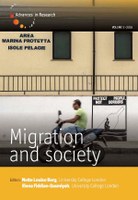 |
|
Missbach, Antje / Phillips, Melissa (2020). Introduction: Reconceptualizing Transit State in an Era of Outsourcing, Offshoring, and Obfuscation. Migration and Society 3 (1): 19–33. There has been growing pressure on states to “solve” the phenomenon of irregular migration. Destination countries have transferred this pressure onto transit countries, which are assumed to have the political will, ability, and means to stop irregular migration. Th is special section looks at the ways in which transit countries respond to challenges, pressures, and compromises in matters of irregular migration policies through a number of empirical case studies. Making transit countries the main focus, this special section aims t o scrutinize domestic policy discourses in the transit countries, which are infl uenced by regional agreements and economic incentives from abroad but are also shaped by local interests and a wide range of actors. Of special interest is to understand whether the logics of destination countries that favor deterrence and exclusion have been adopted by politicians and the public discourse within transit countries. |
 |
|
Schlehe, Judith / Yulianto, Vissia Ita (2020). An anthropology of waste. Morality and social mobilisation in Java. Indonesia and the Malay World 48 (140): 40-59. This article discusses plastic and other solid household waste in both rural and urban Daerah Istimewa Yogyakarta (Special Region of Yogyakarta) and integrates several practical and theoretical perspectives in its analysis. An exploration of the everyday littering practices of the Javanese people is combined with analysis of their particular ways of relating to the environment. This study reveals that an abstract notion of nature is not seen as crucial by most actors. Rather, what counts for individuals is their immediate social environment. Government officials are increasing efforts to raise awareness of the issues at hand, and to encourage citizens to sort household waste and to recycle. However, bottom-up initiatives such as community-based ‘waste banks’, communal clean-ups and ‘recycle fashion’ street carnivals that address various social, economic, and emotional aspects of waste have proven much more efficient. Thus, a tentative path to transform the waste problem that, in the authors’ perspective, challenges the notions of growth, modernisation, and human-nonhuman relations is seen in Java in the mobilisation of the local, social and moral world. However, it is not certain that this will generate a less consumptive lifestyle leading to the much needed reduction of waste. |
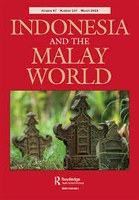 |
|
Manea, Maria-Gabriela / Rüland, Jürgen (2020). The diffusion of parliamentary oversight: investigating the democratization of the armed forces in Indonesia and Nigeria. Contemporary Politics 26 (2): 165-185. Parliamentary control of the armed forces is a core norm of the liberal security sector reform paradigm. Western governments and transnational actors have spread this norm to democratizing states through financial and technical assistance. This article examines its diffusion to two new democracies of the Global South, Indonesia and Nigeria. Past research on civil–military relations has relied on historical and rationalist explanations of ideational and institutional change. Employing diffusion theory, this article adopts an alternative approach. The findings display major differences: while Nigerian reformers contented themselves with a mere mimicry of the new externally propagated norm, the Indonesian contestation over parliamentary oversight has produced ‘constitutive localization’. |
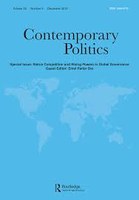 |
|
Müller, Lukas Maximilian (2019). ASEAN centrality under threat – the cases of RCEP and connectivity. Journal of Contemporary East Asia Studies 8 (2): 177-198. This contribution takes stock of ASEAN centrality in trade and the emerging policy area of trade infrastructure, also known as connectivity. ASEAN centrality in the East Asian and Indo-Pacific regions has increasingly been called into question, but most studies have failed to specify what ASEAN centrality is and how it can be measured. |
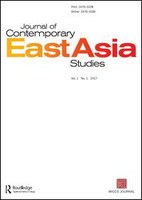 |
|
Palmer, Wayne / Missbach, Antje (2019). Enforcing labour rights of irregular migrants in Indonesia. Third World Quarterly 40 (5): 908-925. The multi-directional nature of labour migration flows has resulted in an increasing number of countries having become both senders and receivers of regular and irregular migrants. However, some countries continue to see themselves primarily as senders and so ignore their role as a receiving country, which can have negative implications for the rights of migrants in their territory. Using the example of Indonesia, which is State Party to the 1990 UN Convention on the Rights of All Migrant Workers and Their Families, this article demonstrates that irregular migrant workers in this country have the legal right to protection against labour exploitation even when they work despite the government’s prohibition on employment. The article discusses the ‘right to work’ and how international human rights law has translated it into the ‘right to protection from labour exploitation’ for irregular migrants in Indonesia. By way of two case studies about the Indonesian government’s handling of irregular migrants, it shows how it prioritises enforcement of the employment immigration law over labour and employment laws much like countries that have not ratified the ICRMW. It also draws attention to legal protection gaps that emerge for asylum seekers when they are recognised to be genuine refugees. |
 |
|
Rüland, Jürgen (2019). From Trade to Investment: ASEAN and AFTA in the Era of the "New Regionalism". Pacific Affairs 92 (3): 533-540. The article is part of the Pacific Affairs feature entitled “Enduring Issues, Changing Perspectives.” The feature revisits what can be claimed to be a “classic” article previously published in the journal, that has attracted significant attention. This article revisits Paul Bowles “ASEAN, AFTA and the ‘New Regionalism,’” published by Pacific Affairs in 1997. It reflects upon the article’s significance at the time it was published and how scholarship on the topic has developed and changed since then. |
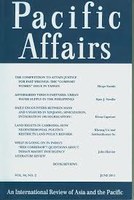 |
|
Rüland, Jürgen (2019). Good global citizen? ASEAN's image building in the United Nations. Asia Pacific Business Review 24 (5): 751-771. Based on role theory, the article examines the images that ASEAN member governments project of their organization. It rests on a discourse analysis of 198 speeches in the United Nations General Assembly between 1998 and 2017. Findings suggest that ASEAN does not figure as a top priority for delegates and that an overarching ASEAN role conception is missing. However, their addresses reveal parameters on which a collective role conception can be built. Individual ASEAN countries undertake great efforts to project themselves as ‘good global citizens,’ a role conception that could also be applied to ASEA |
|
|
Schlehe, Judith (2019). Cosmopolitanism, Pluralism and Self-Orientalism in the Modern Mystical World of Java. Asian Journal of Social Science 47 (3): 364-386. At present, a great deal of the scholarly research on Indonesia focuses on the processes of Islamisation. This paper will discuss a phenomenon that seems to point in a different direction, namely the contemporary reconfiguration of dukun/spiritual experts called paranormal. These mystics indicate a peculiar form of pluralism. They are an assemblage of tradition and modernity, locality and translocality, religion and mysticism, spirituality and business, and global esotericism and popular psychology. Most of them belong to the urban middle class, are highly professional, and make extensive use of modern mass media to advertise their supernatural skills. Yet, how do they position themselves in Indonesian and global cultural contexts? This paper identifies the ongoing ambivalence between cosmopolitan ideas and their rupture in polarising, orientalist, and occidentalist imaginaries. Finally, a new understanding of cosmopolitanism is suggested that expands the reference beyond the world of humans by also including a plurality of supernatural powers. |
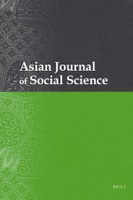 |
|
Fünfgeld, Anna (2019). The Dream of ASEAN Connectivity: Imagining Infrastructure in Southeast Asia. Pacific Affairs 92 (2): 287-311. Large-scale infrastructural development schemes are currently experiencinga worldwide political revival. Beyond establishing physical connections over distance, enhancing trade relations, and enabling service delivery, such schemes also play a central role in the construction of political entities. For the Association of Southeast Asian Nations (ASEAN), infrastructure development is crucial for the advancement of regional connectivity. Its Master Plan on ASEAN Connectivity (MPAC) includes large-scale projects such as the trans-ASEAN highway, trans-regional power grids, and a regional gas pipeline network. Linking Henri Lefebvre’s conceptualization on the production of space with recent literature on the role of infrastructure imaginaries, this paper explores how the region’s future is envisioned in the Southeast Asian dream of connectivity. The study primarily relies on a hermeneutic analysis of video releases that promote the Master Plan. It shows that—similar to other infrastructure projects—the connectivity dream is closely related to imaginaries of movement and modernity. However, as it is almost exclusively an urban vision, the connectivity agenda seems not only to interconnect and homogenize regional space but it may also enforce preexisting disconnections and so potentially lead to more fragmentation. |
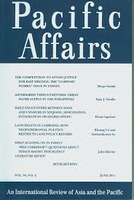 |
|
Rüland, Jürgen / Michael, Arndt (2019). Overlapping regionalism and cooperative hegemony: how China and India compete in South and Southeast Asia. Cambridge Review of International Affairs 32 (2): 178-200. This article examines the phenomenon of overlapping regionalism in South and Southeast Asia. Theoretically it rests on Thomas Pedersen’s ‘ideational-institutionalist realism’ approach. We argue that in the two sub-regions under study the proliferation of regional organizations has been greatly stimulated by hegemonic and counter-hegemonic dynamics involving Asia’s largest powers, China and India. We claim that sceptical world views highlighting vulnerability, victimization and national survival are deeply entrenched in the mental maps of the regions’ foreign policy elites. Regional institution building is thus informed by the tenets of realism. We trace how and why China and India seek to establish ‘cooperative hegemonies’ by building regional institutions for incorporating their neighbours into their sphere of influence while keeping rival powers at bay, and also show why smaller states in the region join these regional fora. |
|
|
Piper, Nicola / Rother, Stefan (2019). Political remittances and the diffusion of a rights-based approach to migration governance: the case of the Migrant Forum in Asia (MFA). Journal of Ethnic and Migration Studies 46 (6): 1057-1071. This paper aims to address a rarely researched dimension of political remittances by moving from the (trans)national to the regional level, and from the individual to the institutional level of collective action. We base our analyses of the regional and institutional aspects on the case of the Migrant Forum in Asia (MFA), a regional network comprising migrants’ rights organisations that span across Asia (from West to East). Over the past two decades, this network has been instrumental in creating and expanding political spaces at various levels (national, transnational, regional and global) in which political advocacy in the form of organising strategies and the framing of political issues has ‘travelled’. We argue that this is done via the diffusion of political remittances within advocacy networks and that such diffusion generates counter-hegemonic knowledge to state-led interpretations of the governance of migration. This paper uses the notion of ‘political remittances’ not only to highlight the multiplying effect of the flow of ideas and practices in relation to membership of organisations involved in collective advocacy; but also in terms of multiplication of targets of the advocacy. We differentiate between a horizontal dimension, where remittances are being circulated between the (national) members of the network and the vertical dimension, where ideas also circulate as remittances back and forth between the national members of the network and the global level. |
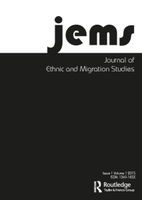 |
| Kneebone, Susan / Missbach, Antje (2018). The Human Rights Implications of Australian and Indonesian Anti-Smuggling Laws. International Journal of Migration and Border Studies 4 (4): 379-396. Australia-Indonesia cooperation on anti-smuggling measures dates from the mid-1990s when joint policing activities and cooperation on preventing smuggling began between Australia and Indonesia (Connery, Sambhi, & McKenzie, 2014a; Connery, Sambhi, & McKenzie, 2014b). In this introduction we place the issue of smuggling in the context of responses to global refugee movements and explain Australia’s interest and involvement in framing an anti-smuggling as a ‘crimmigation’ response. In the next section we will describe that developing bilateral relationship in order to show how it focused on preventing the movement of asylum seekers who were framed as illegal migrants. In the second half of the paper, we examine the legislative response of each country and its human rights impacts. |
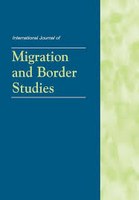 |
| Palmer, Wayne / Missbach, Antje (2018). Judicial Discretion and the Minimum Statutory Sentence for Migrant Smuggling through Indonesia. Asian Journal of Law and Society 5 (2): 413-431. The general, but false, perception of migrant smuggling through Indonesia, a large, archipelagic country, is that smugglers operate entirely on their own. In fact, the more complex smuggling operations rely on broad networks of foreign organizers as well as local intermediaries and ground staff. In 2011, the Indonesian legislature introduced a severe minimum sentence for any involvement in migrant smuggling with the expectation that the judiciary would apply the sentence in all future cases. However, some judges proceeded to hand down sentences below the statutory minimum, arguing that the punishment is not commensurate to the relatively minor roles played by locals. This article examines how judges at all levels of the judiciary did so in ten related cases. In conclusion, it argues that statutory sentences are not mandatory in Indonesia and that, by applying below-minimum sentences, judges not only maintain judicial independence; they also effectively exercise a judicial review function. |
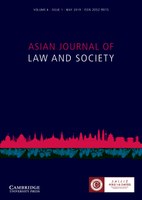 |
| McNevin, Anne / Missbach, Antje (2018). Luxury limbo: temporal techniques of border control and the humanitariarisation of waiting. International Journal of Migration and Border Studies 4 (1/2): 12-34. In this article, we examine temporal techniques of border control including prolonged periods of waiting, stasis and indeterminacy that increasingly characterise the experience of refugees, asylum seekers and other irregular migrants. We argue that these temporal techniques are enhanced and legitimised by parallel efforts to improve accommodation for irregular migrants - a process we call the humanitarianisation of waiting. We focus on the Indonesian context, where growing numbers of refugees wait for resettlement elsewhere, whilst housed in non-custodial alternatives to detention. We show how the promotion of alternatives to detention as humane and pragmatic enables containment strategies pursued through migration management to persist under a cloak of benevolence. The result is a kind of 'luxury' limbo that refugees experience and through which it becomes harder to disentangle the managerial emphasis on migrant care from the more pernicious practices of border security. The paper's analytical distinction between spatial and temporal techniques of border control illuminates the vexed politics of humanitarianism with respect to human mobility in the Indonesian context and beyond. |
 |
| McNevin, Anne / Missbach, Antje (2018). Refuge as a Horizon of Aspiration (Or, What the International Refugee Regime Can Learn From Acehnese Fishermen). Journal of Refugee Studies 31 (3): 292-313. In May 2015, Acehnese fishermen rescued over 1,800 displaced Rohingya who were stranded in the Andaman Sea. They did so in the face of a regional governmental stand-off that threatened to leave the Rohingya to drown. What compelled the fishermen and the villages from which they came to respond in this way? How might this example be instructive for an international refugee regime that failed in this case, as in others, to offer even the most basic form of protection to some of the world’s most egregiously displaced? In this article, we respond to these questions, drawing on fieldwork based in Aceh and Jakarta alongside the insights of Jacques Derrida on the subject of hospitality. We show how the Acehnese example speaks to a general paradox of hospitality that all potential hosts confront, including those states currently denying entrée to asylum seekers. We identify three specific ways in which the Acehnese example can be drawn on as a source of both critique and inspiration. These concern the limits of refugee law as a ‘solution’ to the current ‘refugee crisis’, the ways in which capacity to provide hospitality is measured and the value of contingency in generating pathways oriented towards more hospitable responses to displacement. |
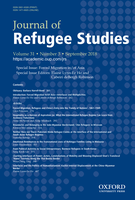 |
| Gonschorek, Gerrit J. / Schulze, Günther G. / Suharnoko Sjahrir, Bambang (2018). To the ones in need or the ones you need? The political economy of central discretionary grants: empirical evidence from Indonesia. European Journal of Political Economy 54: 240-260. We analyze the allocation of discretionary grants from the central government to local governments in Indonesia. Using OLS and Fixed Effects models on an unbalanced panel data set for more than 400 Indonesian districts covering the period 2005–2013, we investigate whether the allocation of the grants are determined by the need of a district, by political alignment of the central government with the local district heads, or by reelection motives of the incumbent president. We find that grants are not determined by need characteristics and that political considerations matter significantly. Districts with low support for the president received significantly more than the core supporting districts, especially in the year of national elections. This effect is limited to the first term of the president. In the second term, after which reelection is impossible, political considerations were largely absent. This pattern is consistent with the view that the incumbent president considers discretionary grants as an instrument to increase reelection probabilities. Unlike the evidence for most countries, we find no effect for political party alignment with local district heads. Our results are robust to the inclusion of a number of other variables capturing competing motives. |
|
| Gonschorek, Gerrit J. / Schulze, Günther G. (2018). Continuity or Change? Indonesia's Intergovernmental Fiscal Transfer System under Jokowi. Journal of Southeast Asian Economies 35 (2): 143-164. This paper provides a systematic overview of the intergovernmental fiscal transfer system in Indonesia. It describes the size, allocation mechanism, and economic rationale (if any) of the different transfer schemes. Furthermore, the study points out major changes in the institutional set-up and in the relative magnitudes of the transfers effected by the Joko "Jokowi" Widodo administration. This allows us to assess the extent to which the current administration has shifted the policy stance on (fiscal) decentralization in the country. We critically evaluate the effectiveness and efficiency of the existing system, including the newly implemented reforms. |
|
| Piper, Nicola / Rother, Stefan / Rüland, Jürgen (2018). Challenging State Sovereignty in the Age of Migration. Concluding Remarks. European Journal of East Asian Studies 17 (1): 118-133. The multi-level dimension of migration governance is gaining increasing attention – and that includes the regional and sub-regional level. As a contribution to this research, Nicola Piper, Jürgen Rüland and Stefan Rother have guest edited a two-part special Issue for the European Journal of East Asian studies (EJEAS). The theme is “Challenging State Sovereignty: A Multi-level Approach to Southeast and East Asian Migration” and the topics of the articles range from “Mobility Norms in Free Trade Agreements” to the migration industry, securitization of migrant, refugee protection, migrant domestic workers as agents of development and pilgrimage migration to Mecca. The seven empirical studies in this Special Issue thus examine current political, economic, social and legal dimensions of migration in Southeast Asia from an interdisciplinary perspective, linking the discussion of the migration–sovereignty nexus to ‘regional migration regimes’, ‘the transnational–national intersection’ and ‘grass-roots responses’. The common message that emerges from the papers in this issue — that state sovereignty in the area of migration is being challenged from multiple levels — leads us to argue for a future research agenda which would align the study of sovereignty more closely with governance studies as well as studies on norm diffusion. Such an agenda would contribute new insights into emerging forms of sovereignty beyond the confines of the state. |
|
|
Rother, Stefan (2018). Angry birds of passage - migrant rights networks and counter-hegemonic resistance to global migration discourses. Globalizations 15 (6): 1-16. The past decade has seen the emergence of a global migration governance architecture. But while - unlike other 'objects' of global governance - migrants are able to speak for themselves, only limited participatory space has been reserved for them in global processes. In reaction to this glaring democratic deficit, migrant organizations try to challenge and bring about change in the nascent global migration regime. Drawing from neo-Gramscian approaches, this paper analyses the various political spaces where a cluster of migrant rights organizations and 'networks of networks' express and organize resistance and counter-hegemonic discourses to the current paradigms within global migration governance. Particularly, this article focuses on two spaces of organizing: the International Assembly of Migrants and Refugees (IAMR), held by the International Migrants Alliance (IMA), and the Churches Witnessing With Migrants (CWWM) wherein temporary labour migrants, often referred to as 'birds of passage', form a large part of their constituency. |
|
|
Rüland, Jürgen (2018). Coping with crisis: Southeast Asian regionalism and the ideational constraints of reform. Asia Europe Journal 16 (2): 155-168. The key argument of this article is that during serious crises and external shocks, societal actors do not necessarily follow the predictions of theories on ideational change. This literature argues that crises and external shocks spur ideational change as expectations associated with the old order are no longer met. A study of the Association of Southeast Asian Nations (ASEAN) shows that the Asian financial crisis of 1997/1998 stimulated a reform debate but that this discourse did not facilitate paradigmatic changes in the region’s repository of cooperation norms. What at first sight appeared to be an accelerating Europeanization of Southeast Asian regionalism proved to be a process involving the retention of major elements of the region’s “cognitive prior.” New ideas of regional integration have at best been emulated or localized, but have not led to a thorough transformation of Southeast Asian cooperation norms. This must be attributed to the entrenched nature of the region’s cognitive prior epitomized by the worldviews of political decision-makers who regard the external world as essentially hostile. This belief has been reproduced many times in the political experiences of the region’s foreign policy elites—not least by the Asian Financial Crisis—thus confirming the ideational orthodoxy that national sovereignty provides the best protection for nation states. A deepening of regional integration is faced with major ideational obstacles under these conditions. |
|
|
Rother, Stefan (2018). ASEAN Forum on Migrant Labour. A space for civil society in migration governance at the regional level? Asia Pacific Viewpoint 59 (1): 107-118. The aim of this article is to discuss and substantiate new spaces for the political participation of migrant civil society at the regional level in Southeast Asia through the lens of the Association of Southeast Asian Nations (ASEAN) Forum on Migrant Labour (AFML). The AFML process is shaped by the International Labour Organisation and mirrors its tripartite format, essentially bringing together governments, employers’ and workers’ organisations.Crucially, migrant support and self‐organisations also have access, even if somewhat restricted, to regularly held deliberations. In light of the ASEAN consensus on migration that was agreed upon at the end of 2017, the article situates the AFML within the ongoing process of migration governance in the region and focusses especially on the role of migrant civil society as an important stakeholder. Based on the specific experience of civil society organisations (CSOs) from Malaysia, the article discusses which spaces the forum provides for civil society actors and how the latter use them for their advocacy. The major argument of the article is that the development of migration policies at the regional level can benefit from the inclusion of migrant civil society in the process. The governance of migrants could thus be complemented by governance for and by migrants. |
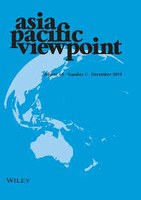 |
| Rother, Stefan (2018). The Global Forum on Migration and Development as a venue of state socialisation. A stepping stone for multi-level migration governance? Journal of Ethnic and Migration Studies 45 (8): 1-17. This article focuses on the Global Forum on Migration and Development (GFMD) which has become one of the major global spaces for deliberations on migration but remains informal and non-binding. Drawing from literature on norm diffusion and state socialisation, it debates the role of the GFMD as a stepping stone for a more robust, multi-level and networked global migration governance by bringing together governments, global institutions, civil society and to a lesser degree the private sector. It is argued that the GFMD has the potential to socialise states in two ways that are conducive to establishing a multi-level global migration governance: First, states are exposed to discourses on migration as a truly global issue. The second way in which the GFMD process can socialise states is in the interaction with migrant civil society, thus potentially ‘blurring’ previously distant if not openly antagonistic relations. Since most states regard migration as one of their last ‘bastions of sovereignty’, the GFMD could provide a necessary first step as a trust-building measure. Providing participatory spaces and allowing agency for migrants and their organisations is not a mere optional feature but a crucial component for a truly multi-level and thus multi-stakeholder global migration governance. |
 |
| Lücking, Mirjam (2017). Working in Mecca: How Informal Pilgrimage-Migration from Madura, Indonesia, to Saudi Arabia Challenges State Sovereignty. European Journal of East Asian Studies 16 (2): 248-274. On the island of Madura, various forms of pilgrimage–migration, a fusion of labour migration and pilgrimage, challenge the Indonesian government’s regulation of pilgrims’ and labourers’ mobility to the Gulf. Among the Madurese people, alternative channels of travelling to Mecca are increasingly popular and informal; personal networks appear to be considered more reliable and accountable than the state’s guidance. The Madurese people’s strong desire to perform the pilgrimage to Mecca, local conceptions of migration in search of success and incomprehensible bureaucratic procedures in the official channels of migration and pilgrimage motivate people to circumvent state structures. Moreover, rumours about the ‘Madurese mafia’ in Mecca and the religious elite’s connections to the ‘Holy Land’ strengthen religious and ethnic affiliations. Local loyalties challenge the state’s sovereignty over actual practices of semi-legal approaches to migration and pilgrimage. |
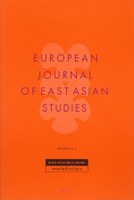 |
| Rüland, Jürgen (2017). The ASEAN Economic Community and National Sovereignty. Towards a Securitisation of Labour Migration? A Press Analysis of Four Southeast Asian Countries. European Journal of East Asian Studies 16 (2): 193-219. The article examines whether, and how far, the ASEAN Economic Community (AEC) has triggered a discourse on labour migration in ASEAN member countries which exhibits a tendency towards securitising the free flow of labour. It begins with the observation that fears linger in ASEAN’s member countries that market liberalisation may not only lead to a flooding with imported goods, but also intensify intra-regional labour migration. The ushering in of the AEC can thus be considered a critical juncture facilitating ideational changes and so exacerbating labour migration politicisation. Resting on the Copenhagen School’s securitisation theory and a discourse analysis of 72 newspaper articles, and based on a taxonomy of politicisation, the article’s major findings are that the level of politicisation is limited in the four countries under investigation. Surprisingly, it is higher in Indonesia than in Singapore and Malaysia where securitisation effects would have been expected. Explanations suggest that issues such as terrorism and maritime border concerns are currently more conducive for securitisation. In Indonesia and Singapore, the level of politicising post-AEC labour migration is higher than in Malaysia and the Philippines due to deeply inculcated vulnerability and survival discourses, which let elites respond seismically to global and regional developments. |
 |
| Michael, Arndt (2017). Cooperation is What India Makes of It - A Normative Inquiry into the Origins and Development of Regional Cooperation in South Asia and the Indian Ocean. Asian Security. Published online only. DOI: 10.1080/14799855.2017.1347636 Successful multilateral economic, political or security cooperation as best exemplified by organizations such as the EU or ASEAN invites the question why comparable organizations have never been established in South Asia and the Indian Ocean Rim, two geo-strategically important world regions. This article foregoes political-realist arguments and offers an alternative explanation for the failure of regional multilateralism in those two regions by using the social-constructivist framework of norm localization. This framework, based upon third-generation norm diffusion, provides a new analytical toolbox for analysing the general puzzle why one region may accept a particular norm while rejecting another. Arguing the case for the existence of a special South Asian regional variation of multilateralism which is termed 'Panchsheel-multilateralism', the article examines the process of localization of the global norm regional mutlilateralism and analyses how this norm became institutionalized in the form of the South Asian Association for Regional Cooperation (SAARC) and the Indian Ocean Rim Association (IORA). The main argument of the article is that the global norm of regional multilateralism has been localized into a principally Indian influenced model of multilateralism, based on the latter's cognitive prior. Consequently, there has virtually never been room for any genuine multilateral cooperation, while tangible cooperative results are found in the bilateral domain only. |
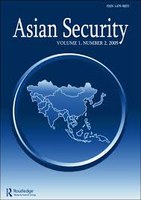 |
| Kis-Katos, Krisztina / Sjahrir, Bambang Suharnoko (2017). The impact of fiscal and political decentralization on local public investment in Indonesia. Journal of Comparative Economics 45 (2): 344-365. We investigate the effects of the fiscal, administrative and political decentralization process in Indonesia on budget allocation at the sub-national level. We find that after the large-scale expenditure decentralization of 2001, districts with relatively lower levels of public infrastructure started to invest significantly more in health and physical infrastructure, although not in education infrastructure. At the same time, we also see a tightening of the budget constraint in districts where the democratically elected government heads took over already before gaining fiscal powers. Finally, our results document decreases in public investments under directly elected district heads, showing no beneficial effects of direct elections on investment targeting. |
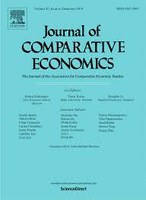 |
|
Rother, Stefan (2017). Indonesian migrant domestic workers in transnational political spaces: agency, gender roles and social class formation. Journal of Ethnic and Migration Studies 43 (6): 956-973. The focus of this article is a cluster of grassroots movements and networks of networks: the Association of Indonesian Migrant Workers (ATKI) based in Hong Kong. By using Kelly's [2007. Filipino Migration, Transnationalism and Class Identity (ARI Working Press Series, 90). Singapore: Asia Research Institute.] typology of four dimensions of class (i.e. position, process, peformance and politics) as a framework of analysis, the article shows that Indonesian migrant domestic workers can hold multiple class identities at various positions in transnational political space(s). Through organising in these particular spaces, Indonesian migrant domestic workers express agency, reformulate their gender roles and identify themselves as a transnational social class. This social class identification is based on their awareness of the transnational nature of the exploitation that migrants experience but is also framed within a wider global perspective of 'root causes' such as neoliberal policies and unjust trade agreements. By not accepting the class position ascribed to them as domestic workers, these migrant organisations chose to define their social class by performance and generate political capital. The article adds the notion of positionality to the intersectionality approach, that is, the way social class intersects with gender, economic status/occupation, ethnicity and transnational status might differ depending on the position. |
 |
|
Rüland, Jürgen (2017). Democratizing Foreign-Policy Making in Indonesia and the Democratization of ASEAN: A Role Theory Analysis. TRaNS: Trans –Regional and –National Studies of Southeast Asia 5 (1): 49-73. With the resignation of President Soeharto in 1998 and subsequent democratization, Indonesia’s foreign policy underwent major changes. More stakeholders than under Soeharto’s New Order regime are now participating in foreignpolicy making. The country seemed to make democracy promotion a hallmark of its foreign policy, especially under the presidency of Susilo Bambang Yudhoyono (2004–2014). This raises the questions of whether and, if so, to what extent Indonesian democratization changed the country’s established foreign-policy role conceptions and how much impact Indonesia’s democratization had on the democratization of regional governance. The paper seeks to answer these questions by developing a theoretical framework based on a constructivist version of role theory. On the basis of speeches held by Indonesian political leaders in the United Nations General Assembly and major domestic foreignpolicy pronouncements, it documents changes in Indonesia’s foreign-policy role concepts. It shows that, indeed, in the Era Reformasi, democracy became a major component in the country’s foreign-policy role concept, although many elements of the role concept such as development orientation, Third Worldism, peace orientation, and a mediator’s role remained constant. However, the litmus test for a democracy-oriented foreign policy, that is, the democratization of regional governance in Southeast Asia, remains ambiguous, and concrete policy initiatives often declaratory. |
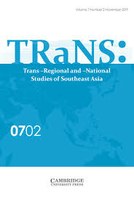 |
| Hamilton-Hart, Natasha / Schulze, Günther G. (2016). Taxing Times in Indonesia: The Challenge of Restoring Competitiveness and the Search for Fiscal Space. Bulletin of Indonesian Economic Studies 52 (3): 265-295. Indonesia’s economic growth picked up slightly in mid-2016 but remains below the level demanded by government and popular aspirations. Despite a plethora of reforms intended to increase efficiency and productivity, some policies are perverse and longstanding problems of implementation remain. The share of manufacturing has declined, the real exchange rate has appreciated, exports have dwindled, and growth has been trending downwards. The banking sector is stable but inefficient, with wide net interest margins and numerous barriers to competition. Trade protection, particularly in basic food commodities, has created high costs that weigh particularly heavily on the poor. Declining government revenues have placed increasing pressure on the public budget, even as the current administration aims to increase spending on infrastructure and welfare and to enhance productivity. In an effort to increase revenues, the government has announced a tax amnesty program and other measures. In addition, Sri Mulyani Indrawati, the new finance minister, has taken steps to cut non-essential expenditure in order to secure high spending on infrastructure and at the same time keep within the 3% budget deficit limit stipulated by law. Although the overall debt situation is not yet alarming, declining revenues and budget cuts that do not fully reflect this decline are putting pressure on increasing debt levels. The government’s high-profile tax amnesty program was the major policy initiative implemented in the second half of 2016 that aimed to relieve this pressure. Despite widespread criticism of, and scepticism about, the tax amnesty (both within and outside Indonesia), its first phase had a much higher participation rate than most independent accounts expected. Revenues raised so far through the amnesty are less than 60% of the official target, but this is actually a strong result for the short term. The bigger question, however, is whether the amnesty is a key element of a more encompassing strategy to overhaul the system of taxation and tax administration. |
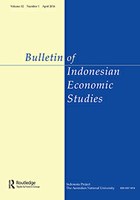 |
| Müller, Lukas (2016). Beyond Actorness. Structure and Agency in EU-ASEAN Interregionalism. European Journal of East Asian Studies 15 (2): 257-288. This paper is concerned with the determining factors of the interregional relationship between the European Union (EU) and the Association of Southeast Asian Nations (ASEAN), specifically its institutional proliferation on the three institutional levels of EU-to-ASEAN relations (bi-regionalism), relations inside ASEM (trans-regionalism) as well as relations between the EU and individual ASEAN member states (region-to-state). Commonly, interregional relations are seen as depending on the actorness of the regional organisations involved. This paper proposes an alternative approach, focusing on structural interdependence and agency on the part of both regional actors as the two main determinants of the institutional proliferation. The analysis suggests that levels of political and economic interdependence are low at the bi-regional level and higher at both the trans-regional and region-to-state level, leading to a proliferation of institutional structures at these levels. Additionally, the analysis reveals three unique strategies by ASEAN and the EU contributing to the design of their interregional relationship. For ASEAN, these strategies consist of (1) omni-enmeshment, (2) vertical and horizontal hedging, and (3) the rule of relative institutionalisation. For the EU, these strategies consist of (1) a pragmatic approach towards ASEAN, (2) a widening of interest towards East Asia, and (3) capacity-building bi-regionalism. |
 |
|
Schlehe, Judith (2016). Contesting Javanese Traditions. The popularisation of rituals between religion and tourism. Indonesia and the Malay World 45 (131): 1-21. This article focuses on the cultural politics of the invention and revival of public traditions. By drawing on the ethnographic example of a kirab budaya (cultural parade) in Kota Gede, a historic area of Yogyakarta, it shows the complex renegotiations and discursive tension connected to religious spectacles in contemporary Java. This article understands popularised traditions as reflections of the current dynamics between Islamisation, policymaking, and a culture open to diverse negotiations and individual interpretation. The conclusion of this study is that commodifying local religious rituals as tourist events for economic reasons make them acceptable in an increasingly Islamised environment. |
 |
| Carrapatoso, Astrid / Well, Mareike (2016). REDD+ finance: policy making in the context of fragmented institutions. Climate Policy 17 (6): 687-707. This article analyses the current institutional architecture of international finance for REDD + (reducing emissions from deforestation and forest degradation, and the role of conservation, sustainable management of forests and enhancement of forest carbon stocks in developing countries) and aims at a better understanding of the complementary or contradictory nature of existing funding mechanisms. Through the integration of REDD + into the Paris Agreement of the UN Framework Convention on Climate Change (UNFCCC), the scene is set for countries to use this political legitimacy and momentum to further REDD + implementation. How REDD + is and will be financed is still a defining question for its successful implementation. This study shows that the heterogeneity of international financial support for REDD + is an illustrative case for the phenomenon of institutional fragmentation. It explores to what extent the current setting of REDD + finance can be seen as a rational response to earlier governance challenges, and whether a setting of co-governing institutions may evolve towards a functional differentiation of governance tasks. By discussing the specific case of REDD + finance in Indonesia, the possible feedback effects of institutional fragmentation at the national level are also considered. The study finds that a strengthened coordination of the existing financing efforts is decisive for making the most of the strong commitment to REDD + reflected in the Paris Agreement. By including the perspective of functional differentiation, the article zooms in on the practical effects and opportunities of institutional fragmentation, thereby advancing current reasoning on this aspect of global environmental governance. |
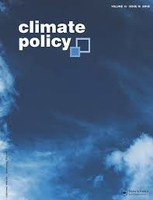 |
|
Huotari, Mikko / Heep, Sandra (2016). Learning geoeconomics: China’s experimental financial and monetary initiatives. Asia Europe Journal 14 (2): 153-171. China’s rise is increasingly impacting on the global financial and monetary order. To manage its growing centrality in global financial flows and its new relevance for patterns of currency usage, Beijing has been creating a set of new institutional arrangements in three crucial fields: the provision of crisis liquidity, development financing, and a global infrastructure to internationalize its currency. In contrast to the dominant power political interpretation of such developments, this article highlights the strong linkages of Beijing’s new initiatives with the changes in China’s capitalist development path and stresses their experimental character that serves to manage the economic and political risks of China’s accelerating financial internationalization.With a distinct learning attitude regarding its rising geoeconomic prominence and engagement, Beijing’s risk-averse strategy involves a very careful linking, layering, and nesting of new arrangements. |
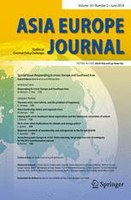 |
|
Rüland, Jürgen (2016). Why (most) Indonesian businesses fear the ASEAN Economic Community: Struggling with Southeast Asia's regional corporatism. Third World Quarterly 37 (6): 1130-1145. By the end of 2015 the Association of Southeast Nations (ASEAN) had ushered in a common market, the ASEAN Economic Community (AEC). However, the groups most affected by it - small businesses - were bypassed in the decision-making process. They are the victim of a selectively inclusive state corporatism which member countries have transferred from their domestic political system to the regional level. In this article I argue that the decision to create the AEC was promoted by ASEAN governments together with foreign economic and local corporate interests. This coalition was able to frame the AEC in a way that small businesses perceived it as a win-win scheme. Empirically the article focuses on Indonesia. |
|
|
Kis-Katos, Krisztina / Sparrow, Robert (2015). Poverty, Labour Markets and Trade Liberalization in Indonesia. Journal of Development Economics 177: 94-106. We measure the effects of trade liberalization over the period of 1993–2002 on regional poverty levels in 259 Indonesian districts, and investigate the labor market mechanisms behind these effects. The identification strategy relies on combining information on initial regional labor and product market structure with the exogenous tariff reduction schedule over four three-year periods. We add to the literature on local labor market effects of trade policies by distinguishing between tariffs for output markets and for intermediate inputs, and finding that poverty reduced especially in districts with a greater sector exposure to input tariff liberalization. Among the potential channels behind this effect, we show that low-skilled work participation and middle-skilled wages were more responsive to reductions in import tariffs on intermediate goods than to reductions in import tariffs on final outputs. These results point towards increasing firm competitiveness as a driving factor behind the beneficial poverty effects. |
|
|
Rother, Stefan / Piper, Nicola (2015). Alternative Regionalism from Below: Democratizing ASEAN’s Migration Governance. International Migration 53 (3): 36-49. Most literature on migration governance has addressed the global level, and it has done so primarily from a state-centric and top-down perspective, with little regard to the role of civil society organizations in shaping its direction. Moreover, in an institutional sense, except for the EU, the regional level has only received scant attention, which is surprising given the significance of intra-regional migration flows elsewhere. The Association of Southeast Asian Nations (ASEAN) is a case in point. Although there are few direct channels of engagement for civil society, the vibrant migrant rights community in Asia has been capitalizing on, and creating, opportunities at multiple levels including the regional. Our argument is that this creative use of channels of engagement in combined form at multiple levels can have democratizing potential. |
|
| Huotari, Mikko / Hanemann, Thilo (2014). Emerging Powers and Change in the Global Financial Order. Global Policy 5 (3): 298-310. Emerging economies have become a major force in the world economy. This article examines the role of Brazil, Russia, India and China (BRIC) in global finance and compares their potential to challenge the parameters of international financial and monetary relations. Instead of focusing on changes inside the existing system of multilateral governance, our analysis stresses the need to consider a broader set of channels to develop and exert financial power. Our comparative assessment of BRIC economies’ increasing autonomy, their strategic intentions, financial system capacity and the behavior of subnational ‘power brokers’ in global financial markets serves as a starting point to advance the debate over ongoing structural changes in the global financial order. We show how increasing autonomy and financial power have already led emerging markets to develop alternatives for crisis financing and development assistance. The prospects for deeper cooperation among BRIC economies however remain gloomy, as the already very diverse preferences with regard to global financial structures can be expected to further diverge. |
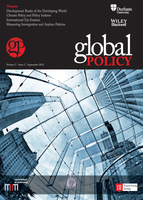 |
|
Huotari, Mikko / Rüland, Jürgen (Eds.) (2014). Context, Concepts and Comparison in Southeast Asian Studies—Introduction to the Special Issue. Pacific Affairs 87 (3): 415-439. Debating the challenges of comparisons in Southeast Asian studies, the objective of this Special Issue is to advance the agenda of context-sensitive and methodologically reflected Comparative Area Studies (CAS). As a deliberate attempt to infuse new meaning into the embattled genre of area studies, CAS seeks to overcome increasingly rigid (sub-)disciplinary barriers often constructed around methodological arguments. Moreover, through stepping up the inclusion of non-Western regions in the research agenda, CAS also makes a decided bid to transcend the usually strongly Western-centric theory-building in most social science disciplines. This introduction locates the following articles in the broader context of the area studies-discipline divide. It highlights how the challenges of comparative research practice on different layers of social reality are at the heart of this divide but at the same time provide a productive ground for exchange in interdisciplinary Southeast Asian studies. We expand on the contributing authors’ arguments by providing a typology of comparative research practice that captures the value of various forms of area studies comparisons and by reflecting on the conceptual preconditions for fruitful comparisons. |
|
|
von Lübke, Christian (2014). Modular Comparisons: Grounding and Gauging Southeast Asian Governance. Pacific Affairs 87 (3): 509-538. This paper argues that analytical tensions between comparability and distinctiveness, which often drive a wedge between disciplinary and area-studies debates, are not irreconcilable. Drawing on original research of public governance in Southeast Asia, I contend that modular comparisons - which blend different levels of analytical scope and abstraction - offer a valuable methodological instrument for cross-fertilizing empirical depth and breadth. To showcase modular comparisons in practice, I present four interconnected studies of public governance in Southeast Asia. The analysis combines in-depth city-level analyses and subnational cross-sections (that draw heavily on Indonesia's multilevel governance experience) with an intraregional governance comparison (that expands the focus towards the Philippines and Thailand). To shed further light on "what makes governments work," the discussion traverses micro/macro-level confines and within-case/cross-case boundaries. In doing so, the concept of modular comparisons provide a systematic and contextually grounded perspective on Southeast Asian governance and a means for narrowing prevailing area-discipline divides. |
|
|
Rüland, Jürgen (2014). Constructing Regionalism Domestically: Local Actors and Foreign Policymaking in Newly Democratized Indonesia. Foreign Policy Analysis 10 (2): 181-201. There is a dearth of studies exploring the construction of ideas on regionalism outside Europe. This article seeks to make a contribution to close this gap. It examines the construction of ideas on regionalism in Indonesia, the largest member country of the Association of Southeast Asian Nations (ASEAN). Theoretically, the paper draws from Acharya's concept of "constitutive localization" which it develops further. It offers an alternative explanation to studies which argue that as a result of mimetic behavior, social learning, and cost-benefit calculations, regional organizations across the world become increasingly similar. While this may be the case in terms of rhetoric and organizational structure, it is not necessarily the case at a normative level. The Indonesian case shows that even though foreign policy stakeholders have increasingly championed European ideas of regional integration after the Asian Financial Crisis 1997/1998, they have skillfully amalgamated them with older local worldview through framing, grafting, and pruning. European ideas of regional integration thereby served to modernize and relegitimize a foreign policy agenda which seeks to establish Indonesia as a regional leader with ambitions to play a major role in global politics. |
|
|
Rüland, Jürgen (2014). The limits of democratizing interest representation: ASEAN’s regional corporatism and normative challenges. European Journal of International Relations 20 (1): 237-261. This article addresses the problem of interest representation in regional organizations. Departing from a theory-guided four-dimensional typology, the study explores how the Association of Southeast Asian Nations (ASEAN) responded to normative challenges of its system of interest representation. The findings suggest that ASEAN has skilfully countered external democracy promotion and domestic pressures for democratizing regional governance through variable strategies including rejection, isomorphic adaptation and localization. The multiple strategies employed by the grouping have largely kept intact its ‘cognitive prior’ which rests on a blending of imported European and older local organicist ideas. Given the resilience of this cognitive prior, the prospects for a wholesale liberal-pluralist transformation of ASEAN’s system of interest representation appear dim. |
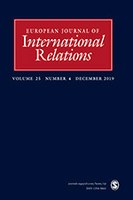 |
|
Rüland, Jürgen / Bechle, Karsten (2014). Defending state-centric regionalism through mimicry and localisation: regional parliamentary bodies in the Association of Southeast Asian Nations (ASEAN) and Mercosur. Journal of International Relations and Development 17 (1): 61-88. The creation of parliamentary bodies for regional organisations such as Association of Southeast Asian Nations (ASEAN) or Mercosur seems to be at odds with the intergovernmental logic on which these organisations rest. We approach this puzzle from the perspective of norm diffusion theory. In the article we argue that transnational legislative bodies in Southeast Asia and South America have been primarily established to retain the respective organisation’s ‘cognitive prior’, which in both cases rests upon deeply entrenched corporatist norms and ideas. We test our theoretical claims by a comparative study on the emergence and evolution of the ASEAN Inter-Parliamentary Assembly and the Mercosur Parliament. |
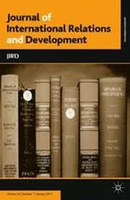 |
|
Sjahrir, Bambang Suharnoko / Kis-Katos, Krisztina / Schulze, Günther G. (2014). Administrative Overspending in Indonesian Districts: The Role of Local Politics. World Development 59 (2): 166-183. This paper analyzes the determinants of the excessive administrative spending of local governments in Indonesia. In an unbalanced panel data set of 399 districts for 2001–09, we show that the proliferation of districts has not led to increased administrative spending; instead a lack of political accountability is responsible for this excess. The degree of political competition influences the level of administrative spending significantly; newly introduced direct elections of district heads, however, did not curtail the waste. |
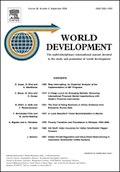 |
|
Sjahrir, Bambang Suharnoko / Kis-Katos, Krisztina / Schulze, Günther G. (2013). Political Budget Cycles in Indonesia at the District Level. Economics Letters 120 (2): 342-345. This paper analyzes political budget cycles (PBCs) in newly democratized Indonesia. The analysis finds significant political budget cycles (PBCs) for Indonesian districts only for direct, not for indirect, elections. PBCs are significantly stronger if the incumbent runs for reelection. They are well identified due to the exogenously different timing of elections. |
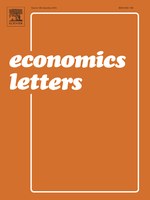 |
|
Schlehe, Judith (2013). Concepts of Asia, the West and the Self in contemporary Indonesia: An anthropological account. South East Asia Research 21 (3): 497-515. This paper explores the imaginations of Asia, the West and various self-concepts in contemporary, post-Reformasi Indonesia. Departing from a problematization of the underlying concepts in recent social science literature, the author asks how Indonesians construct their moral order and their sense of Self, 'Asia' or 'the East' by constructing a Western counterpart. This question is traced with respect to various religious and spiritual orientations and to Indonesian popular culture. Finally, relocated orientations towards other imagined centres in the Global South and East are considered as potential indicators of an increasingly decentred world. The study is grounded in empirical fieldwork with people from various walks of life in different regions of Indonesia. |
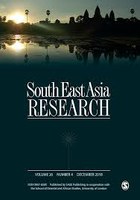 |
|
Kis-Katos, Krisztina / Schulze, Günther G. (2013). Corruption in Southeast Asia: a survey of recent research. Asian-Pacific Economic Literature 27: 79-109. This paper surveys the empirical literature on corruption in Southeast Asia with a focus on the methodological approach that the contributions take to identify the extent, determinants, and consequences of corruption and the remedies against it. We present the major topics that empirical corruption research has focused on and point out the methodological challenges that this line of research has to address. We discuss the empirical corruption studies on Southeast Asia and describe the empirical approach that they have taken. |
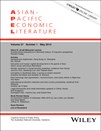 |
|
Nguitragool, Paruedee (2012). God-King and Indonesia: Renegotiating the Boundaries between Western and Non-Western Perspectives on Foreign Policy. Pacific Affairs 85 (4): 723-743. The critique of Westerncentrism in knowledge production in the discipline of international relations (IR) has led to attempts to incorporate regional experiences into the mainstream IR theorization. Ambivalence and challenges remain, however. They arise from the similar and shared histories that make distinguishing Western and non-Western ideas and theories difficult. Seeking to contribute to the debate on Westerncentrism in IR theorization, I examine the cultural sources and history of political realism in Java. By tracing the history of struggles, political practices and ideas such as the God-King, problems related to some contemporary IR theories become evident. The boundaries between Western and non-Western political thinking, however, become less pronounced. |
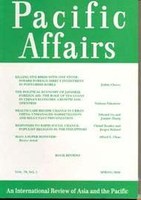 |
|
Piper, Nicola / Rother, Stefan (2012). Let´s Argue about Migration: Advancing a right(s) discourse via communicative opportunities. Third World Quarterly 33 (9): 1735-1750. The emerging global governance of migration is dominated by two discourses which shape policy approaches: 1) migration management and 2) the migration–development nexus. With large numbers of labour migrants being marginalised, migrant rights organisations have formed global alliances to argue for the centrality of a third discourse, the rights-based approach to migration. The question is how to inject this into the global debate which has sidelined migrant rights issues. Despite having hardly any bargaining power and restricted space for direct access vis-a`-vis global governing institutions, migrant rights organisations are employing a number of strategies to overcome this marginalisation. We analyse these efforts by drawing on social movement studies and International Relations research on communicative action. Empirically this article draws on observations made during two major global fora: the negotiations in connection with the new Convention on ‘Decent Work for Domestic Workers’ at the International Labour Conference (ILC) and civil society participation in the Global Forum on Migration and Development (GFMD). |
|
|
Rüland, Jürgen (2012). Introduction to the First Four Articles: Governance, Decentralisation and Democratisation in Southeast Asia. European Journal of East Asian Studies 11: 5-16. Decentralisation is one of the most enduring and contested themes in the development discourse. The concept has gone through ebbs and flows, normative and functional variants, wide and narrow definitions. Although it has been part of changing academic fashions, in six development decades it has never disappeared from the agenda of development theorists, practitioners and donor organisations. |
|
|
von Lübke, Christian (2012). Striking the Right Balance. Economic Concentration and Local Government Performance in Indonesia and the Philippines. European Journal of East Asian Studies 11: 17-44. The relationship between economic concentration and governance remains controversial. While some studies find that high economic concentration strengthens collective action and reform cooperation, others stress dangers of rent-seeking and state capture. In this paper I argue that effects are neither strictly positive nor negative: they are best described as an inverted u-shaped relationship, where better governance performance emerges with moderate economic concentration. Decentralisation reforms in Indonesia and the Philippines— unprecedented in scope and scale—provide a unique opportunity to explore this thesis. Subnational case studies and cross-sectional data analyses indicate that moderately concentrated polities in both countries are accompanied by more effective and less corrupt service provision. The presence of ‘contested oligarchies’—a small but diverse pool of economic elites—paves the ground for more balanced policy arenas; they contribute to a scenario where private sector actors are strong enough to influence government decisions and, at the same time, diverse enough to keep themselves and public officials in check. |
|
|
Nguitragool, Parudee (2012). Environmental Governance in Democratic and Decentralised Indonesia: Between State, Family and Conservation. European Journal of East Asian Studies 11: 45-69. As it involves devolution of political and fiscal powers, decentralisation is widely seen as a significant step towards good governance. Although democratic reform and decentralisation have had some positive impacts in terms of access and accountability, I argue that environmental governance in Indonesia still suffers largely from the lack of social cohesion caused by the weaknesses of the conservation norms, modernisation and fragmentation along the axis of class inequality and identity politics. |
|
|
Mansrisuk, Chaiwatt (2012). Decentralization in Thailand and the Limits of the Functionalist Perspective of Institutional Reform. European Journal of East Asian Studies 11: 71-97. Thailand has adopted democratic decentralisation since the mid-1990s. The reform agenda has primarily influenced by the functionalist view of institutional reform which depicts institutional effects as the intended consequences of their creators’ action. It emphasises the significance of ‘technocratic expertise’ and ‘rationality’ in pursuing institutional reform, and, hence, overlooks complexities and difficulties which may obstruct institutional change. The experience of decentralisation in Thailand seems to contradict the conventional wisdom of the functionalist approach. The implementation of the decentralisation reform in Thailand has not completely achieved initial policy objectives, but, it, instead, produced unintended consequences. This paper empirically provides insights into the dynamics of decentralisation in Thailand which theoretically exposes the limits of the functionalist view of institutional reform. |
|
|
von Lübke, Christian / Patunru, Arianto A. / McCulloch, Neil (2012). A Tale of Two Cities: The Political Economy of Local Investment Climates in Indonesia. Journal of Development Studies 48 (7): 799-816. There is little doubt that protecting property rights, reducing corruption, and improving public services are desirable long-term objectives for all countries. But are such institutional prescriptions sufficient, or even necessary, to achieve investment and growth? By exploring the political economy of the cities of Solo and Manado in Indonesia, this article shows that relationship-based, rather than rule-based, cooperation between government leaders and local firms can provide an effective mechanism to boost investment and improve local investment climates. Our findings challenge the conventional wisdom that impartial rule-based economic governance is a precondition for investment, although it suggests that the creation of such institutions may make growth more sustainable and equitable in the medium and long term. |
|
|
Agustina, Cut Dian R.D. / Fengler, Wolfgang / Schulze, Günther G. (2012). The Regional Impact of Indonesia’s Fiscal Policy on Oil and Gas. Bulletin of Indonesian Economic Studies 48 (3): 369-397. This paper analyzes the regional impact of Indonesia’s fuel policy. It discusses how the sharing of oil and gas revenue and taxes on oil and gas between the center and the regions affect sub-national fiscal position and what the regional incidence of the fuel subsidies is. It also analyzes the regional impact of president’s recent proposal to discontinue subsidizing vehicle fuel as well as the proposal to eliminate the fuel subsidies altogether and shows how the regions are affected by these suggestions. |
 |
|
Rother, Stefan (2012). Wendt meets East: ASEAN cultures of conflict and cooperation. Cooperation and Conflict 47 (1): 49–67. The major theories of International Relations (IRT) differ significantly as far as their concepts of conflict and cooperation are concerned. However, they share one common denominator: They are deeply rooted in Western experiences and intellectual history. Recently, a growing literature on the possibilities and benefits of a non-Western IRT has emerged. This article proposes a ‘via media’: a theoretical approach that can be applied to Western and non-Western IR alike, taking into consideration the specific historical, ideational and cultural contexts. Based on social constructivism as developed by Alexander Wendt, it is argued that the existence of a collective identity among states in a given region can manifest itself in distinctive logics or cultures of anarchy. These are based on norms of conflict or cooperation that can be established through interaction, can be proposed by outside agents and localized, or can be affected by the re-negotiation of state identity caused by domestic events. In addition, there are cultural path dependencies: norms rooted in the cultural memory or consciousness of a region which tend to be ignored by interpretations that merely focus on current events or established Western models of cooperation. Area studies can contribute to provide this context. |
|
|
Rüland, Jürgen (2012). The rise of "diminished multilateralism": East Asian and European forum shopping in global governance. Asia Europe Journal 9 (2): 255-270. The article argues that the “principled multilateralism” of the immediate post-Cold War period is increasingly giving way to what may be called a “diminished multilateralism.” Newly emerging global and regional powers such as the BRICS states (Brazil, Russia, India, China and South Africa) and other rising powers in the Global South are increasingly questioning the legitimacy of the existing international architecture which they regard as a vehicle of the USA and Western countries to conserve their international influence in an era of rapid change. In the process, international institutions have increasingly become arenas of power rivalries which take the form of contests over access and membership, decision-making rules and normative order. The result is an increasing paralysis of these institutions and their inability to solve global problems. One aspect of these institutional power struggles is “forum shopping.” The article shows that East Asia and Europe have both become active players in forum shopping. Three conditions facilitated forum shopping: major crises and external shocks; sentiments of frustrated entitlement in connection with exclusive and discriminatory international institutions, and extra- and intra-regional power shifts. |
|
|
Schlehe, Judith (2011). Cultural Politics of Representation in Contemporary Indonesia, European Journal of East Asian Studies 10 (2): 149-167. The organisation and representation of diversity is a crucial challenge for all countries and especially for post-colonial nations. Accordingly, the politics of multiethnic representation as well as multicultural rhetoric is constantly reformulated and adapted to new conditions, both locally and globally. Cultural theme parks are a typical arena for the display of multiculturality. In the case of Indonesia it is of special interest to investigate whether and in what ways the public staging of ethnic cultures has changed in the reform era (since 1998). This includes aspects of inclusion and exclusion. Which ethnic groups are defined as being constitutive for the Indonesian nation and how are they represented in the central theme park, Taman Mini, in Jakarta? In which ways are the political processes of democratisation and decentralisation reflected in the organisation of Taman Mini, which used to be a main icon of Suharto’s New Order regime? |
|
|
Kis-Katos, Krisztina / Schulze, Günther G. (2011). Child Labour in Indonesian Small Industries. Journal of Development Studies 47 (12): 1887-1908. We analyse the geographic incidence of child labour in small manufacturing firms in Indonesia at the village level. Our unique data set covers virtually all Indonesian villages and urban neighbourhoods; it allows us to distinguish between demand and supply side determinants of child labour. We show by correcting for sample selection that a number of counterintuitive results – child labour being unaffected by credit access and school proximity – are the result of an interplay between supply and demand side determinants. Credit access and school proximity reduce child labour supply, but simultaneously constitute positive location factors for firms thereby increasing the demand for child labourers. To effectively reduce child labour, growth oriented policies, such as enhancing school and credit facilities, should be complemented by policies specifically geared towards increasing school attendance. |
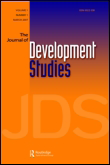 |
|
Nguitragool, Paruedee (2011). Negotiating the Haze Treaty: Rationality and Institutions in the Negotiations for the ASEAN Agreement on Transboundary Haze Pollution (2002). Asian Survey 51 (2): 356-378. This article examines ASEAN's cooperation on transboundary haze pollution. I argue that ASEAN's creation of the haze treaty in 2002 demonstrates its attempt to depart from certain elements of the institutional culture. But both ASEAN's treaty and cooperation have been hindered by certain normative constraints, organizational customs, and domestic politics. |
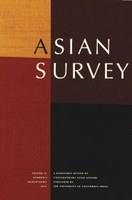 |
|
Kis-Katos, Krisztina / Sparrow, Robert (2011). Child labor and trade liberalization in Indonesia. Journal of Human Resources 46 (4): 722-749. We examine the effects of trade liberalization on child work in Indonesia, identifying geographical differences in the effects of trade policy through district level exposure to reduction in import tariff barriers, from 1993 to 2002. The results suggest that increased exposure to trade liberalization is associated with a decrease in child work among the 10–15 year olds. The effects of tariff reductions are strongest for children from low-skill backgrounds, older siblings, and in rural areas. Favorable income effects for the poor, induced by trade liberalization, are likely to be the dominating effects underlying these results. |
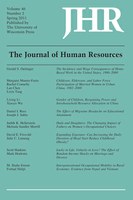 |
|
Rüland, Jürgen (2011). Southeast Asian Regionalism and Global Governance: "Multilateral Utility" or "Hedging Utility"? Contemporary Southeast Asia 33 (1): 83-112. Regional organizations are widely regarded as building blocks of a multilateral order. But this view ignores the fact that regional organizations vary in their contribution to multilateralism. This article therefore adds to Dent's established concept of "multilateral utility" the concept of "hedging utility" which I claim better captures the behaviour of many non-Western regional organizations including the Association of Southeast Asian Nations (ASEAN). In the theory-guided part the article develops six indicators to distinguish the two types of regional organizations: level of institutionalization, governance costs, nesting, agenda-setting, norm entrepreneurship and mode of interaction. Based on these categories, the article examines ASEAN's role as a contributor to a multilateral order. The findings illustrate that indeed "hedging utility" rather than "multilateral utility" better describes ASEAN's agency in shaping international order. The hedging concept resonates well with elite notions of Southeast Asian political culture and also captures the institutional balancing dimension of ASEAN's (security) policies. |
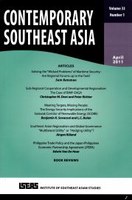 |
|
Rüland, Jürgen (2010). Balancers, multilateral utilities or regional identity builders? International relations and the study of interregionalism. Journal of European Public Policy 17 (8): 1271-1283. This article presents an overview on the state of the art of research on interregional relations. It clarifies underlying concepts and focuses on the theory-guided literature exploring the functions of interregional forums for the emerging global governance architecture. Empirical evidence provided by many of the reviewed studies suggest that interregional relations are part of complex institutional balancing games played by regions which curtail their potential as multilateral utilities. Empirical studies examining norm diffusion between regions are still in their infancy. This leaves considerable space for innovative research going beyond the notion of the EU as a “normative power” trying to persuade other regions to adopt its model of regional integration. |
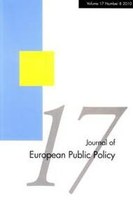 |
|
Rüland, Jürgen (2009). Deepening ASEAN cooperation through democratization? The Indonesian legislature and foreign policymaking. International Relations of the Asia-Pacific 9 (3): 373-402. Recent reforms of the Association of Southeast Asian Nations (ASEAN) are viewed by liberal institutionalists and constructivists as triggering a fundamental transformation of the ASEAN Way, the embodiment of the association's established, strictly intergovernmental cooperation norms. This article questions such reasoning, if it is causally linked to expectations of a greater deepening of ASEAN cooperation. Based on recent rationalist theorizing and Snyder's 'nationalist elite persuasion' hypothesis, the article argues that the causal relationships between democracy and regional integration are more complex than assumed in Eurocentric integration theories. By examining goreign policy debates in the Indonesian legislature, the article shows that foreign plicymaking has become much more democratic and pluralistic since the end of President Suharto's New Order regime. However, as case studies of foreign policy issues suggest, democratic norms have often been localized by a neo-nationalist agenda that hamstrings the deepening of regional integration. |
|
|
Jetschke, Anja (2009). Institutionalizing ASEAN: celebrating Europe through network governance. Cambridge Review of International Affairs 22 (3): 407-426. This article provides a new piece for two of the puzzles of institutionalized cooperation in Association of Southeast Asian Nations (ASEAN). First, with regard to the organization's four decades of existence, there has always been a marked gap between ASEAN's rhetorical goals of cooperation and its actual achievements. What explains these systematic failures of implementation? Second, from the outset, ASEAN was criticized for its light institutionalization, which failed to deliver the substantial cooperation goals. Despite selected institutional reforms, ASEAN's autonomy has not increased remarkably and it has not made any major institutional innovations. Why does ASEAN design institutions it does not use? Why does this transformation gap occur? The author suggests a sociological institutional explanation and argues that major impulses for cooperation have come from outside Southeast Asia, most importantly from Europe. By mimicking the European integration process, ASEAN member states have effectively created an isomorphic organization. The Association's institutional development reflects a concern for international legitimacy and less an objective functional demand arising from the specific interactions of member states. This copying process has led to network governance within the organization. |
|
|
Rüland, Jürgen / Kessler, Christl / Rother, Stefan (2009). Democratisation Through International Migration? Explorative Thoughts on a Novel Research Agenda. European Journal of East Asian Studies 8 (2): 161-179. The article provides an introduction into this EJEAS issue on democratisation and international migration. Third Wave democratisation and the recent unprecedented increase in international labour migration may have the same structural origins, but so far few attempts have been made to link the two research agendas. One explanation might be that existing research on democratisation has neglected the exogenous dimension, and that migration research was preoccupied with destination countries. By drawing from the contributions to this Issue and the literature on norm diffusion, we argue that migrants have the potential to act as norm entrepreneurs and as agents of democratisation. The article maps out three avenues of norm diffusion: Migration can be the cause for changes of political attitudes at the individual level, it can be an enabling factor for collective action and it may lead to institutional change at the national and global level. To further assess how precisely these pathways might support or impede democratisation, more theory-guided empirical studies on the subject are urgently needed. |
|
|
Jetschke, Anja / Rüland, Jürgen (2009). Decoupling rhetoric and practice: the cultural limits of ASEAN cooperation. The Pacific Review 22 (2): 179-203. Why have ASEAN member states declared and why do they continue to declare their intention to enhance cooperation and devise projects when implementation lags behind their rhetoric? Why do they rhetorically commit themselves to cooperation, when they continue to stick to self-interested policies to the detriment of ASEAN's collective interest? And given these diverging practices, how likely is it that the objective of a more legalized and binding cooperation associated with the recently ratified ASEAN Charter is being implemented? This article draws attention to ASEAN's hybrid or dual character of international cooperation, consisting of the emulation of the European integration project and the persistence of deeper cultural strata of Southeast Asia's cooperation project that determine the limits of cooperation: Southeast Asia's social structure and political culture that have not produced those mechanisms that might facilitate international cooperation. If our explanation is correct that cooperation within ASEAN comes about as a simultaneous process of emulation and established cultural practices, we expect change only under specified conditions. Based on our argument and the theoretical literature on normative change, we identify and discuss in greater detail three potential outcomes of change: inertia, localization and transformation. The three modes make different predictions concerning change within ASEAN. Based on an analysis of the two major shocks with which ASEAN has had to contend in the last two decades, namely the Cold War in Asia and the Asian financial crisis, we argue that ASEAN's dominant response to major ideational challenges has been combinations of localization and inertia and has not been followed by a fundamental change of practice. |
|
|
Rother, Stefan (2009). Changed in Migration? Philippine Return Migrants and (Un)Democratic Remittances. European Journal of East Asian Studies 8 (2): 245-274. The link between development and migration has been termed the 'new development mantra'. Studies on the subject have so far mostly focused on economic remittances, and the potential consequences of return migration on democratisation have been rarely touched upon. This article attests the potential of the migration experience to affect migrants' attitudes towards democracy, thus playing an important role in the diffuse support needed for democracies in the stage of consolidation. Based on a survey among 1,000 Philippine return migrants from six destinations, the paper suggests that the migration experience may not only lead to a more critical stance towards the political system of the home country; there are also indicators of lesser support for the principles of democracy when compared to migrants about to leave the country for the first time. The political system of the destination as such seems to be a less decisive factor than the specific freedoms and restrictions experienced by migrants and a potential bias when selecting the destination. The article focuses on return migrants from Saudi Arabia, Hong Kong and Japan, which showed the most distinctive numbers in support of democracy or changes therein when compared to first-time migrants heading for that destination. |
|
|
Manea, Maria-Gabriela (2009). How and why interaction matters. Cooperation and Conflict, 44 (1), 27-49. The aftermath of the Cold War has brought a shift in the West's position on the acceptance and promotion of international human rights standards in developing countries. In this context, the Association of Southeast Asian Nations (ASEAN) member countries challenge the West's position based on two contradictory principles — comprehensibility and cultural embedment of human rights. In this article, I argue that interactions with regard to human rights involving state and non-state actors in ASEAN have become part of the process of regional identity formation. How ASEAN has responded to external pressures in terms of compliance with international human rights norms, and how it has developed its own normative and procedural approach to human rights at the regional level, are inherent in the dynamics of `Self' definition. A mixed pattern of `rhetorical' and `communicative action' explains how interaction has led to different phases — differentiation, affirmation, contestation and re-orientation — in the dynamics of `Self' definition of ASEAN with regard to human rights. |
|
|
Czaika, Mathias / Kis-Katos, Krisztina (2009). Civil Conflict and Displacement: Village-Level Determinants of Forced Migration in Aceh. Journal of Peace Research 46 (3): 399-418. The purpose of this article is to identify the determinants of displacement behavior based on various push and pull factors at the village level. The study concentrates on changes in village population during three years of civil conflict (1999–2002) in Aceh, Indonesia. The empirical analysis is based on a unique dataset from two census rounds of the Indonesian Village Potential Census (PODES). It uses data on around 5,200 Acehnese villages and relates village-level population change to conflict variables, geographic patterns, and traditional socio-economic determinants of migration. By applying quantile regressions, the push (outflow) factors and the pull (inflow) determinants of migration can also be distinguished. The authors identify the following factors as the main determinants of the Aceh migration pattern in this period. First, conflict clashes induced large rearrangements of the population between villages in highly affected districts, as well as strong village emigration from the geographically remote regions in Central Aceh towards the less conflict-affected coastal industrial areas. Besides conflict factors, an (ongoing) rural–urban migration process, driven by socio-economic factors, has taken place during the conflict period. Second, there is also evidence that security considerations, such as the presence of police in a village or neighborhood, were either emigration-reducing or immigration-inducing. Third, although the presence of ethnic Javanese has not been a primary cause of conflict incidence, their intimidation by the rebel movement has led to a significant outflow, primarily from conflict-affected villages in Central Aceh. These results reveal that, beside a conflict-induced fear of violence, population movements in Aceh have also been an outcome of traditional migration determinants. |
|
|
Rüland, Jürgen / Jetschke, Anja (2008). 40 years of ASEAN: perspectives, performance and lessons for change. The Pacific Review 21 (4): 397-409. In this introduction, the editors trace the increasing theoretical diversity of ASEAN research and discuss the contributions to this issue against the current state of the art. Contributions confirm the post-Asian crisis advancement of constructivist scholarship, but by also analyzing ASEAN from the Liberal and English school perspectives, the articles assembled in this issue nevertheless stand for theoretical pluralism. This article continues to open a governance perspective and, against this background, attests to ASEAN's marked success in pacifying an erstwhile turbulent world region but also to ASEAN's much more ambiguous record in responding to the new challenges associated with globalization. |
 |
|
Manea, Maria-Gabriela (2008). Human rights and the interregional dialogue between Asia and Europe: ASEAN-EU relations and ASEM. The Pacific Review 21 (3): 369-396. Since the early 1990s, human rights have been a contentious issue for relations between the Association of Southeast Asian Nations (ASEAN) and the European Union (EU), especially in the Asia-Europe Meeting (ASEM). It is an issue that has constantly led to tensions in interregional cooperation. However, the ASEAN-EU dialogue on human rights has, in fact, had a significant impact on regional dynamics by stimulating the process of regional identity formation, especially in Southeast Asia. The core mechanism through which this development takes place is that of interaction, the process in which the two regional groupings engage while negotiating human rights policy. It can be argued, therefore, that interregional and intraregional human rights interactions are mutually dependent. ASEAN's rather confrontational mode of interaction with the European Union in relation to human rights has served as a catalyst for the dynamic growth of a collective definition of self in ASEAN. It has led to an 'essentialization' of ASEAN's idea of self as opposed to a common other, something which has undermined the possibility of maintaining an interregional dialogue that is not confrontational. However, it has also contributed to the development of a regional space for communicating about human rights and has thus played a central role in the gradual transformation of ASEAN's collective identity formation. |
|
|
Carapatoso, Astrid Fritz (2008). Environmental aspects in free trade agreements in the Asia-Pacific region. Asia Europe Journal 6 (2): 229-244. The trade and environment interface has become a topic of growing importance. Until the early 1990s, the General Agreement on Tariffs and Trade (GATT) and its successor, the World Trade Organisation (WTO), were the major forums to address the relationship between trade and the environment. Significant progress in this area has not yet been made. Since the 1990s, environmental issues have been addressed by the North American Free Trade Agreement (NAFTA) and in recent times by trans-regional and bilateral free trade agreements (FTAs) such as the Trans-Pacific Strategic Economic Partnership Agreement (SEP), the U.S.–Singapore FTA (USSFTA), the Canada–Chile FTA or the New Zealand–Thailand Closer Economic Partnership Agreement (CEP). Not only questions on the effectiveness of FTAs in global and regional environmental governance arise but also on the various actors involved in these negotiations. The question here is whether the integration of environmental issues in FTAs is a top-down approach, leaving the negotiations and implementation of environment cooperation frameworks in the hands of governments, or whether environmental arrangements are the result of a multi-stakeholder dialogue, consequently committing governments, the private sector and civil society to the objective of making trade and environmental policies mutually supportive. This article seeks to address these questions by analysing environmental issues and stakeholder participation in the Asia-Pacific Economic Cooperation (APEC), the Trans-Pacific SEP and the New Zealand–Thailand CEP. |
|
|
Menniken, Timo (2007). Lessons from the Mekong - China's Performance in International Resource Politics. Contemporary Southeast Asia 29 (1): 97-120. Against the backdrop of population and economic growth Chinas water resources are getting scarcer. Uneven regional distribution and increasing pollution further reduce the locally available resources. Domestic measures applied to tackle the problems deriving from this scarcity produce international effects, giving rise to the apprehension that China will have to quench its thirst by increasingly exploiting sources that do not stem from or remain within its own territory.Chinas performance in international negotiations over water as well as in the regional Mekong regime reveals that to China transboundary cooperation is more a strategic option than a normative commitment. This article argues that alliances confronted with the impacts of Chinese water policy should focus on counterbalancing rather than just criticizing or even ignoring Chinese ambitions. With China being in a dominant position hydrologically, as well as politically, a second strategy would be issue linkage: offering incentives in non-water fields in return for cooperative management of shared water resources. |
|
|
Carrapatoso, Astrid Fritz (2007). The Integration of Trade and Environmental Policies in Free Trade Agreements in Southeast Asia. Südostasien aktuell 1/2007: 77-105. The integration of trade and environmental policies is part of the international sustainable development agenda. How trade and environmental policies could be designed in a way which makes them mutually supportive is discussed not only on a multilateral but also on a regional and bilateral level in the context of free trade negotiations. While some Western countries such as the U.S. or New Zealand try to integrate environmental issues into their trade policies, Asian countries, for instance, are less willing to address these issues in trade negotiations. This article seeks to provide an overview of free trade negotiations between Southeast Asian countries and New Zealand in which environmental issues are addressed. Furthermore, it wants to work out the pros and cons of free trade with regard to the environment and seeks to identify some of the factors that influence the integration of trade and environmental policies in bi- and minilateral trade negotiations. |
|
|
Rüland, Jürgen (2006). Interregionalism and the Crisis of Multilateralism: How to Keep the Asia-Europe Meeting (ASEM) Relevant. European Foreign Affairs Review 11 (1): 45-62. The article briefly contextualizes inter-regionalism as a novel level of interaction in international relations driven by the two-processes of globalization and the “new regionalism.” Inter-regionalism is thus testimony of the fact that globalization does not only cause fragmentation, as many critics argue, but also institution-building. From a theoretical point of view five major functions may be attributed to inter-regionalism: balancing, institution-building, rationalizing (global multilateral forums), agenda-setting and identity-building. However, of these five functions, inter-regionalism has mainly performed balancing, and to a much lesser extent (soft) institution-building and identity-building. It did so far contribute little to become a genuine “multilateral utility” performing the crucial rationalizing and agenda-setting functions. The article further explains why this has not been the case. It attributes the evident weaknesses of inter-regional forums such as the Asia-Europe Meeting (ASEM) to an ongoing crisis of multilateralism which is characterized by four major trends: a change of U.S. policies from “assertive multilateralism” to “assertive unilateralism”, a decline of security multilateralism, a crisis of trade multilateralism and a crisis of regionalism. The final part discusses how, against these odds, the Asia-Europe Meeting (ASEM) can retain its relevance as an intermediary between the global and the regional level of international politics. It argues that a change from “soft” to “hard law” is needed and a move towards more binding and obligating policy agreements. This can be achieved in a step-by-step process which takes into account the Asian sides’ aversion against “thick institutionalization.” |
|
|
Kessler, Christl / Rüland, Jürgen (2006). Responses to Rapid Social Change: Populist Religion in the Philippines. Pacific Affairs 79 (1): 73-96. Within the last few decades in the Philippines, there has been outstanding growth among Catholic Charismatic and Pentecostal groups and churches, part of a worldwide proliferation of these strands of Christianity. The article is based on qualitative interviews and nationwide survey data gathered in a research project on religious change in the Philippines, and explores the scope and the character of Charismatic and Pentecostal Christianity in the Philippines. It explains the success of this strand of Christianity by its ability to transfer core concepts and techniques of political populism into the religious sphere. The paper identifies the populist themes within the cognitive framework of Charismatic and Pentecostal religion in the Philippines, as well as the populist techniques applied to mobilize followers. The analysis of Charismatic and Pentecostal religion in the Philippines as populist religion, however, does not imply that such groups and churches can be characterized as populist actors in the political sphere. After outlining the core topics and techniques of populist religion, the paper concludes with a discussion of the political impact of these groups in the still crisis-ridden democracy of the Philippines. These potentials are depicted as potentially ambivalent, due to the ambivalent character of populism itself. In 2007, Pacific Affairs awarded Christl Kessler and Jürgen Rüland the William L. Holland Prize for the best article in 2006. |
|
|
Rüland, Jürgen (2005). The Nature of Southeast Asian Security Challenges. Security Dialogue 36 (4): 545-563. The article argues that there has been a convergence of security challenges in Southeast Asia and the OECD world since the end of the Cold War, but this has not been matched by a convergence of security cultures. Interstate wars and military conflicts, absent in the OECD world since the end of World War II, have also subsided in Southeast Asia, while non-conventional security threats – such as international terrorism, organized crime, irregular migration, environmental degradation and pandemics – have increased in both worlds. However, despite incipient institution-building, Southeast Asian security policies still differ markedly from those of the OECD world. Power and state-centric approaches and a strong reliance on national sovereignty impair collective action. |
|
|
Rüland, Jürgen (2005). East Asian Regionalism: From Stagnation to Re-Invention. European Journal of East Asian Studies 4 (2): 149-176. The article provides a thematic and theoretically informed introduction into this EJEAS issue on East Asian regionalism. Its point of departure is the obvious paralysis of East Asian regionalism during and after the Asian financial crisis. It examines as to what extent the subsequent efforts towards damage control and revitalization have lead to a re-invention of East Asian regional institutions as frequently urged in the region. By reviewing the more recent literature and the contributions assembled in the issue, the article notes that despite the crisis the trend towards institutionalist and constructivist theoretical approaches continues. These approaches however often tend to exhibit a certain cooperative bias which may blur the proclivity of foreign policy-makers in the region for political realism. Subsequent sections examine the cohesion of regional institutions and horizontal institutional differentiation. The article concludes that despite a proliferation of regional institutions, there has been no marked deepening of regional groupings and that regime building, as a approach to the management of interdependence, has not made noteworthy progress in a broad array of policy areas contending with border-crossing policy problems. |
|
|
Rüland, Jürgen (2003). Constitutional Debates in the Philippines. From Presidentialism to Parliamentarianism? Asian Survey XLIII (3): 461-484. The ouster of President Joseph Estrada initiated a new constitutional debate in the Philippines. In view of the fixed term of office, which allows for removal of a malperforming president only by way of an impeachment, political analysts are demanding a shift from the existing presidential to a parliamentary system of government. This article argues that such a shift does not necessarily solve the problems blamed on the 1987 Constitution, such as the rigidities of the presidential term, executive-legislative gridlock, presidential concentration of power, political instability, a weak party system, populism, and patronage. It proposes incremental reforms by amending the 1987 Constitution where needed, without scrapping the presidential system of government. |
|
|
Rüland, Jürgen (2000). ASEAN and the Asian crisis: theoretical implications and practical consequences for Southeast Asian regionalism. The Pacific Review 13 (3): 421-451. The following article joins the debate about the theoretical and empirical implications of the Asian crisis on Southeast Asian regionalism. It argues that the realist–institutionalist dichotomy does not provide a fruitful framework of analysis. ASEAN policies are characterized by a policy mix, albeit one that is influenced by a strong dose of realism – a tendency that has been exacerbated by the Asian crisis. The crisis has thrown ASEAN’s collective identity into deep disarray – and thus also questions constructivist approaches. Departing from these theoretical issues the article traces ASEAN responses to the crisis in three key areas: economic cooperation, enlargement and values. The article concludes with a few lessons for regionalism which may be derived from the Asian crisis. |
 |
Monographs
|
Lücking, Mirjam (2021). Indonesians and Their Arab World: Guided Mobility among Labor Migrants and Mecca Pilgrims. Ithaca: Cornell University Press. Indonesians and Their Arab World explores the ways contemporary Indonesians understand their relationship to the Arab world. Despite being home to the largest Muslim population in the world, Indonesia exists on the periphery of an Islamic world centered around the Arabian Peninsula. Mirjam Lücking approaches the problem of interpreting the current conservative turn in Indonesian Islam by considering the ways personal relationships, public discourse, and matters of religious self-understanding guide two groups of Indonesians who actually travel to the Arabian Peninsula—labor migrants and Mecca pilgrims—in becoming physically mobile and making their mobility meaningful. This concept, which Lücking calls "guided mobility," reveals that changes in Indonesian Islamic traditions are grounded in domestic social constellations and calls claims of outward Arab influence in Indonesia into question. With three levels of comparison (urban and rural areas, Madura and Central Java, and migrants and pilgrims), this ethnographic case study foregrounds how different regional and socioeconomic contexts determine Indonesians' various engagements with the Arab world. |
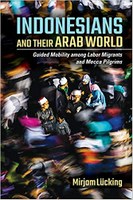 |
|
Purdey, Jemma / Missbach, Antje / McRae, Dave (2019). Indonesia: State and Society in Transition. Boulder: Lynne Rienner. Indonesia remains a country in transition even now, some two decades after its extraordinary shift from authoritarianism to democracy and from economic crisis to a rapidly growing economy. What explains the trajectory of that shift? What challenges does this island nation of 270 million people-with the world's largest Muslim population-face now, as the quality of democratic life erodes and it grapples with profound social and economic inequalities? Addressing these questions, the authors comprehensively explore the dynamics of Indonesia's politics, society, political economy, and culture, as well as its role in the international order. |
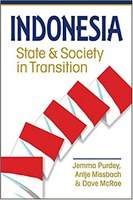 |
|
Rüland, Jürgen / von Lübke, Christian / Baumann, Marcel M. (2019). Religious Actors and Conflict Transformation in Southeast Asia: Indonesia and the Philippines. London: Routledge. Drawing on a rich body of multimethod field research, this book examines the ways in which Indonesian and Philippine religious actors have fostered conflict resolution and under what conditions these efforts have been met with success or limited success. The book addresses two central questions: In what ways, and to what extent, have post-conflict peacebuilding activities of Christian churches contributed to conflict transformation in Mindanao (Philippines) and Maluku (Indonesia)? And to what extent have these church-based efforts been affected by specific economic, political, or social contexts? Based on extensive fieldwork, the study operates with a nested, multi-dimensional, and multi-layered methodological concept which combines qualitative and quantitative methods. Major findings are that church-based peace activities do matter, that they have higher approval rates than state projects, and that they have fostered interreligious understanding. Through innovative analysis, this book fills a lacuna in the study of ethno-religious conflicts. Informed by the novel Comparative Area Studies (CAS) approach, this book is strictly comparative, includes in-case and cross-case comparisons, and bridges disciplinary research with Area Studies. It will be of interest to academics in the fields of conflict and peacebuilding studies, interreligious dialogue, Southeast Asian Studies, and Asian Politics. |
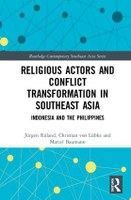 |
|
Rüland, Jürgen (2018). The Indonesian Way: ASEAN, Europeanization, and Foreign Policy Debates in a New Democracy. Stanford: Stanford University Press. On December 31, 2015, the ten-member Association of Southeast Asian Nations (ASEAN) ushered in a new era with the founding of the ASEAN Community (AC). The culmination of 12 years of intensive preparation, the AC was both a historic initiative and an unprecedented step toward the area's regional integration. Political commentators and media outlets, however, greeted its establishment with little fanfare. Implicitly and explicitly, they suggested that the AC was only the beginning: Southeast Asia, they seemed to say, was taking its first steps on a linear process of unification that would converge on the model of the European Union. In The Indonesian Way, Jürgen Rüland challenges this previously unquestioned diffusion of European norms. Focusing on the reception of ASEAN in Indonesia, Rüland traces how foreign policy stakeholders in government, civil society, the legislature, academe, the press, and the business sector have responded to calls for ASEAN's Europeanization, ultimately fusing them with their own distinctly Indonesian form of regionalism. His analysis reframes the nature of ASEAN as well as the discipline of international relations more broadly, writing a narrative of regional integration and norm diffusion that breaks free of Eurocentric thought. "Avoiding the Western-centrism trap characteristic of rationalist theories of regionalism, Jürgen Rüland cleverly builds on current constructivist theories of norm diffusion to explain how foreign policy stakeholders in Indonesia have responded to external ideational and normative pressures seeking to Europeanize ASEAN. With intelligence and nuance, he offers an essential study of comparative regionalism and Indonesia's role in the ASEAN Charter." — Randall Schweller, Ohio State University, Editor-in-Chief (Security Studies) "The book makes a substantial contribution to our understanding of Indonesian foreign policy and ASEAN regionalism. It is an important piece of work, and I found the author´s arguments convincing and compelling" — Moch Faisal Karim (find full review here) "In addition to its important theoretical contribution to regional integration studies – highlighting the complex processes of localization and that of omnidirectional diffusion, signifying that Europe is not the sole source of inspiration about regional integration – Ruland’s book also provides colourful insights into the dynamics of foreign policy decision-making in post-Suharto Indonesia." — Dewi Fortuna Anwar in Contemporary Southeast Asia 40 (2), 2018 (find full review here) "Jürgen Rüland’s analysis of the foreign policy debate occurring in Indonesia over the country’s evolving role in the region as well as ASEAN’s contribution to regional order provides an in-depth, country-focused view of foreign policy-making’s bottom-up dimension. He convincingly shows that Indonesian foreign policy stakeholders, despite drawing from liberal-cosmopolitan norms advanced by the European model, do not follow a 'global' Western-based script of regional integration, but set their country on a distinct path, heavily informed by a local 'cognitive prior.'" — Stéphanie Martel in Pacific Affairs 92 (2), 2019 (find full review here) "To conclude, this book makes a strong contribution to the often Euro-centric debates on norm transfer and regionalism. It does so by challenging core assumptions, such as the depiction of local actors as "passive receivers for norm originating from the West", via a close analysis of the foreign policy debates on ASEAN and regional integration in Indonesia across two administrations.'" — Felix Heiduk in International Quarterly for Asian Studies 49 (3-4), 2018 (find full review here) |
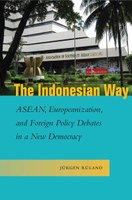 |
|
Kurniawan, Yandry (2017). The Politics of Securitization in Democratic Indonesia. Basingstoke: Palgrave Macmillan. The book presents a novel analytical perspective on Indonesia’s security policies during its transition to democracy. Kunaiwan's analysis revolves around extraordinary measures and normal politics in response to the existential threat to the Indonesian state. This perspective is at the centre of the analysis which examines the process of securitization and desecuritization taken by the Indonesian government. This volume is essential reading for practitioners, students of Indonesian politics and researchers alike. |
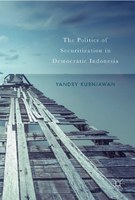 |
|
Lorch, Jasmin (2017). Civil Society and Mirror Images of Weak States. Bangladesh and the Philippines. Basingstoke: Palgrave Macmillan. This book investigates theoretically and empirically whether and (if so) how state weakness influences the way in which national civil societies constitute themselves, using Bangladesh and the Philippines as case studies. A vibrant civil society is usually perceived as an important ingredient of democracy, but does this hold for civil society in weak states as well? What does civil society look like in contexts of state weakness? How much and what kind of political influence does it have in such settings? And are its actors really capable and willing to contribute to democracy in states where independent and legal bureaucratic institutions are weak? Addressing each of these questions, the author points the way to some hard re-thinking about the basis for and approach to development assistance to and via local civil society, with crucial repercussions for the ways in which international development assistance is designed and funded. |
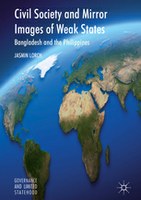 |
|
Lang, Jarno S. (2016). Foreign Policy and the Media. The US in the Eyes of the Indonesian Press. Basingstoke: Palgrave Macmillan. This book analyzes the response of the Indonesian press to American foreign policy during the administrations of Presidents Bush and Obama. Situated in Southeast Asia, Indonesia is the world's fourth most populous country and the largest Muslim nation, and as such is a potentially vital economic and strategic partner to the US in the 21st century. Ever since Indonesian independence post World War II, relations to the US have been marked by ups and downs. The authour argues that the way the Indonesian public perceives the world has an impact on the national self-image that again heavily influences national foreign affairs. For both the US and Indonesia, this is a crucial moment in bilateral relations This study explores Indonesian media responses to American foreign policy by analyzing mor than 400 press articles. In the context of President Obama's declared "pivot to Asia", both countries need to find a way to foster better relations. |
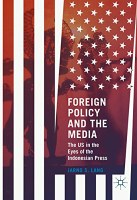 |
|
Kessler, Christl / Rother, Stefan (2016). Democratization through Migration? Remittances and Participation of Philippine Return Migrants. Lanham: Lexington Books. This book discusses whether labor migration can affect democratization processes and what impact the political order of the host country can have on this potential effect. In migration research, studies on the influence of return migrants on the societies in their home countries are still few and predominantly concentrate on the economic dimension of migration. The literature on democratization has likewise paid only scant attention to the external factors that play a role in the transition of states in the process of becoming more democratic. Cognizant of these lacunae in research on migration and democratization, this book sets out to argue that return migrants can play an important role in the consolidation process of young democracies. The goal is to explore the nature of this influence and to discuss its stabilizing as well as destabilizing aspects with regards to democratization. As a case study this book analyzes a “labor exporter par excellence,” the Philippines. Research is based on original data: a survey in the Philippines with 2,000 respondents, 37 in-depth interviews with respondents from the sample, and 45 expert interviews serving as background material. The destinations covered are Saudi Arabia, Qatar, UAE, Taiwan, Japan, and Hong Kong. The findings suggest that the migration experience may not only lead to a more critical stance towards the political system of the home country; there are also indicators of lesser support for the principles of democracy when compared to migrants about to leave the country for the first time. The political system of the destination as such seems to be a less decisive factor than the specific freedoms and restrictions experienced by migrants and a potential bias when selecting the destination. "Kessler and Rother with their study contributed a piece to the puzzle, and at the same time paved the way for much more work that needs to be done at the intersection of migration and democratization reserach." — Gabriele Vogt, ASIEN - The German Journal on Contemporary Asia "Much has been written about the economic effects of international migration but less is known about its political impact. In this highly original work the authors gauge the relationship between migration and democratization in the Philippines and their findings are original and quite surprising. The relationship is more tenuous and nuanced than we might expect. But the subject is vast and this work marks the beginning of what will become a growth field focused on migration and political development. I highly recommend this book." — James F. Hollifield, Southern Methodist University "Throughout the book Kessler and Rother provide a wealth of data and analysis that will be helpful to students and scholars of migration and democratization. They have also done an admirable job in answering the call for more detailed case studies that can inform these larger debates." — M. Scott Solomon, University of South Florida (Read Full Review here) |
|
|
Nguitragool, Paruedee / Rüland, Jürgen (2015). ASEAN as an Actor in International Fora. Cambridge: Cambridge University Press. ASEAN as an Actor in International Fora addresses a blind spot in ASEAN research and in comparative regionalism studies by assessing why, how, when and to what extent ASEAN member governments achieve a collective presence in global fora. Written for academic researchers and practitioners working in areas such as international relations, political science and international law, it examines ASEAN's negotiating behavior with a novel four-point cohesion typology. The authors argue that ASEAN's 'cognitive prior' and its repository of cooperation norms have affected ASEAN's negotiation capacities, formats, strategies and cohesion in international fora. Using two case studies - one on ASEAN's cohesion in the WTO agricultural negotiations and one on UN negotiations on forced labor in Myanmar - they examine ASEAN's collective actions at different stages of negotiation, in different issue areas and in different negotiating fora. The book concludes by providing recommendations for strengthening ASEAN's international negotiation capacities.
"In summary, the book under review constitutes an important contribution to knowledge by virtue of its contextual originality, factual richness, methodological consciousness and systematic execution of a finely articulated conceptual blueprint." — Roda Muskhat in Melbourne Journal of International Law 17 (1), 2016 (find full review here) |
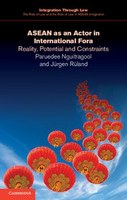 |
|
Michael, Arndt (2013). India's Foreign Policy and Regional Multilateralism. Basingstoke: Palgrave MacMillan. The book examines the genesis and evolution of four regional organizations (South Asian Association for Regional Cooperation [SAARC]; Bay of Bengal Initiative for Multi-Sectoral Technical and Economic Cooperation [BIMST-EC]; Indian Ocean Rim Association for Regional Cooperation [IOR-ARC]; Mekong-Ganga Cooperation [MGC]) by applying the theoretical perspective of norm localization. The book focuses especially on India – a founding member in all four organizations – and traces the impact of India's foreign policy principles and actions on the discourse, the development and the institutional designs of regional multilateralism in South Asia, Southeast Asia - with a particular focus on the Bay of Bengal and the Mekong Ganga area - and the Indian Ocean Rim. “Arndt Michael analyses regional multilateralism focusing extensively on India’s foreign policy and its position in several regional multilateral associations. … will be beneficial for scholars and analysts of South Asia and beyond, and especially useful for those interested in the future course of South Asian regional integration. … an essential text for the study of Indian foreign policy norms and India’s forays into regional multilateralism from the perspectives of both historical and contemporary analysis.” — Stuti Bhatnagar, Journal of South Asian Studies 'The book provides a rich analysis of India's contribution in the discourse, the development and the institutional designs of regional multilateralism. The value of the book also lies in its detailed discussion on the origin and evolution of the SAARC, BIMSTEC, IOR-ARC and MGC as well as a comprehensive analysis of India's 'Cognitive Prior'.' — Gulbin Sultana, India Quarterly: A Journal of International Affairs 'Arndt Michael has made a successful attempt to unearth the normative and ideational determinants of India's foreign policy. He traces the evolution of multilateralism in South Asia and tries to explore the impact of the cognitive prior (ideas, norms and values) of India's foreign policy on the normative structure in the region. [ ] This book is a detailed account of the evolution of multilateralism in South Asia and its relationship with Indian norms and values. Not many texts are available on this aspect of India's foreign policy. In this sense, it serves a useful purpose of bridging a critical gap in the literature.' — Rajan Kumar, International Studies 'Michael's work provides a valuable empirical study of India's engagement in the different regional multilateral setting. His main focus in on the development and evolution of regional multilateralism in South Asia, on which he elaborates extensively in Chapter 3. Moreover, Michael also deserves credit for dealing with a variety of other multilateral initiatives in which India has actively engaged. Michael's main contribution in his detailed tracking of the influence of regional multilateralism on India's foreign policy. His work offers a wealth of information for scholars who seek greater insight into the role of regional organizations in India's foreign policy.' — Christian Wagner, International Quarterly for Asian Studies (Asienforum) 'This book convincingly argues why and how India has until now preferred bilateral negotiation processes and has used a multitude of multilateral organizations in order to push through its own self-interests. [ ] The analysis permits to trace the fears, tensions, chess moves and reactions in India's foreign policy - and that of its neighbours - all the way back to their origins and comprehended them step by step.' — Heinz Nissel, Mitteilungen der Österreichischen Geographischen Gesellschaft 'The monograph examines the connection between India's foreign policy and stagnating multilateralism in the South Asian and neighbouring regions from a constructivist-oriented perspective. [ ] The book is an interesting and fascinating read for students and researchers in the field of International Relations.' — Armin Müller, ASIEN The German Journal on Contemporary Asia 'It is an important topic especially with regard to the developing world. It is logically written and allows even non-specialists to grasp the basic topic. It is based on thorough knowledge of the existing literature and incorporates significant new original materials that make this a must read.' — William Head, Chair of Cecil B. Currey Book Award, Association of Third World Studies (ATWS) Prizes: Arnold-Bergstraesser Award for Political Science; Cecil B. Currey Book Award 2013; Gisela Bonn Award 2013 |
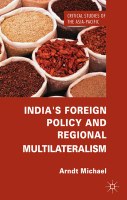 |
|
Priwitzer, Kerstin (2012). The Vietnamese Health Care System in Change. A Policy Network Analysis of a Southeast Asian Welfare Regime. Singapore: Institute of Southeast Asian Studies (ISEAS). Within the last twenty years a large-scale bottom-up privatization has taken place in Vietnam, changing and dismantling the public health care system. This process has led to severe tensions inherent in the transitional society of Vietnam between equity and access to health care support especially for the poor, elderly, migrants, and ethnic minorities on the one hand, and its efficiency on the other hand. The book traces the reform efforts to modernize the health care system by the Communist Party of Vietnam and the Vietnamese government. The author bases her findings on little known primary literature and interviews with key stakeholders of the policy network involved in the reform of the health care system, thereby painting an authentic atmospheric picture of the profound changes in the health care system in Vietnam. |
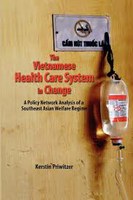 |
|
Kiatpongsan, Chaiyakorn (2011). The EU-Thailand Relations. Tracing the Patterns of New Bilateralism. Amsterdam: Amsterdam University Press. The book focuses on the so-called new bilateralism, a foreign policy development widespread since the mid-1990s. The main puzzle addressed in the book is why the policy trend of new bilateralism has been pursued in spite of the widely accepted views on political and economic advantages of multilateralism. Methodologically, the book introduces a two-level analytical framework derived from foreign policy theories at the unit level. The case study of EU-Thailand relations shows that in times when multilateralism is in crisis shifts towards a foreign policy pragmatism occur and that the prospects of bilateral engagement, identity formation and rhetorical action facilitate such behavioral change. |
|
|
Nguitragool, Paruedee (2011). Environmental Cooperation in Southeast Asia. ASEAN's regime for transboundary haze pollution. London and New York: Routledge. One of the most challenging environmental threats to the ten countries of the Association of Southeast Asian Nations (ASEAN) has been the haze, the sickening and deadly cloud of smoky pollution caused by widespread burning of land and forests in Indoneasia. This book examines both the threat and response to it by analysing environmental cooperation in Southeast Asia from an international regime perspective. Tracing the development of regional cooperation on the haze and evaluating the effectiveness of the cooperation, the author argues that the haze crisis, combined with the economic crisis of 1997, has profoundly challenged the ASEAN modus operandi, and resulted in ASEAN's efforts to establish an environmental regime to cope with environmental challenges. The emerging ASEAN haze regime is a unique case study of a regional environment institution in multi-levelled global environmental governance. Based in in-depth original research, this case study is integrated into international relations, political science and comparative political analysis literatures and contributes to a better understanding of processes within the regional organization. |
|
|
Jetschke, Anja (2010). Human Rights and State Security. Indonesia and the Philippines. Philadephia: University of Pennsylvania Press. In recent years, influential studies have shown that the activities of human rights organizations are central in convincing violating governments to improve their practices. Yet some governments continue to get away with human rights violations despite mobilizations against them. In Human Rights and State Security: Indonesia and the Philippines, Anja Jetschke considers the impact of transnational human rights advocacy on the process of human rights reform and democratization in two countries that have been successful in resisting international human rights pressure. Jetschke describes in detail the effects of campaigns waged by international and domestic NGOs, foreign governments, local opposition leaders, and international organizations. She argues that the literature on transnational advocacy overlooks the ability of governments to justify and excuse human rights violations in their public dialogue with human rights organizations. Detailing efforts of international and domestic human rights advocates to protect the rights of various groups, the case studies in this book suggest that governments are able to block or evade pressures if they invoke threats to state security. Jetschke finds that state security puts in play a set of powerful international norms related to sovereignty—a state's right to territorial integrity, the secular organization of the state, or a government's lack of control over the means of organized violence. If governments frame persuasive arguments around these norms, they can effectively mobilize competing domestic and international groups and trump human rights advocacy. Human Rights and State Security shows that the content and arguments on behalf of human rights matter and provide opportunities for both governments and civil society organizations to advance their agendas. |
|
|
Kessler, Christl / Rüland, Jürgen (2008). Give Jesus a Hand! Charismatic Christians: Populist Religion and Politics in the Philippines. Quezon City: Ateneo de Manila University Press. Evangelical and Pentecostal churches have grown worldwide in the last decades. In the Philippines, this growth has not resulted in a decrease of the Catholic faithful, but in a Pentecostalization of Philippine Protestant Churches and the Philippine Catholic Church as well. In terms of numbers, the Catholic Charismatic movement is by far outnumbering the adherents of Evangelical and Pentecostal churches. This book explores the surge of Charismatic and Pentecostal Christianity using data from a nationwide survey with interviews and observations among Pentecostal churches and Catholic Charismatic groups. The authors question common perceptions of Charismatic Christians as underprivileged masses and depict the Charismatic success as a genuinely religious phenomenon, which nevertheless might have political repercussions. They transfer the concept of political populism to the religious sphere and explain the attractiveness and the ambivalences of Charismatic religion with the properties of populism. The potential political ramifications of the Charismatic success are ambiguous: it has the potential to strengthen the legitimacy of democratic institutions in the Philippines as well as the potential to foster theocratic attitudes. "This excellent study will hopefully not be the authors' last." — Paul D. Matheny, Professor of Christian Theology and Ethics, International Bulletin of Missionary Research "Zusammenfassend lässt sich sagen, dass Kessler/Rüland eine Bündelung von historischen, sozial- und politikwissenschaftlichen Perspektiven gelingt, die einen überaus einblicksreichen Umgang mit dem Forschungsgegenstand aufweist, der auch vor theologischen und kirchengemeindebezogenen Themen keine Berührungsängste hat. Auf Grund der Mehrdimensionalität, mit der sie auf die pfingstlich-charismatische Bewegung auf den Philippinen blickt, die in wichtigen Aspekten weltweit vergleichslos ist, ist diese Studie für Forschende der globalen Pfingstbewegung unbedingt empfehlenswert." — Giovanni Maltese |
|
|
Ziegenhain, Patrick (2008). The Indonesian Parliament and Democratization. Singapore: Institute of Southeast Asian Studies. Democratisation in Indonesia has altered the political decision-making processes in many ways. It has also brought about tremendous change to the role of the Indonesian parliament in the country's political system. Once characterized as a powerless rubber stamp, the parliament has developed into a comprehensive and more representative body able to fulfil its functions more adequately. In the literature on democratic transition, the impact of parliaments on regime changes and on the democratic reorganization of the most important state institutions and regulations is usually neglected. The author addresses this lacune by describing the parliament's contributions towards the process of democratisation in Indonesia. |
|
|
Rüland, Jürgen / Jürgenmeyer, Clemens / Nelson, Michael H. / Ziegenhain, Patrick (2005). Parliaments and Political Change in Asia. Singapore: Institute of Southeast Asian Studies. This study of the national parliaments of India, Indonesia, the Philippines, South Korea, and Thailand is inspired by four major theoretical discourses: Neo-institutionalism, parliamentarianism versus presidentialism, majoritarian versus consensus democracy, and transition theory. The book examines the specific role of parliaments in political decision-making, regime change, democratization, and consolidation of democracy in a comparative perspective. It argues that parliaments play a greater part in the political decision-making than is often asserted and that there is no cogent causal relationship between parliamenetary performance and system of government. "The Book cotains valuable insights on the role, position and type of parliamentary setup in the five countries under study." — Sadayan Riazurrahman, Intellectural Discourse |
|
Editions
|
Arenz, Cathrin / Haug, Michaela / Seitz, Stefan / Venz, Oliver (eds) (2017). Continuity under Change in Dayak Societies. Wiesbaden: SpringerVS. This volume provides a balanced picture of change and continuity within Dayak societies from an anthropological perspective by exploring diverse ways in which certain kinds of knowledge, performances and practices continue within the context of rapid and profound change. The contributions cover a broad variety of topics including political reform, decentralisation, environmental change and related changes in natural resource management, religion and ritual practice, the (re-)formation of ethnic identities as well as conflict transformation in Indonesian Borneo. |
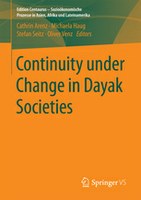 |
|
Huotari, Mikko / Rüland, Jürgen / Schlehe, Judith (eds) (2014). Methodology and Research Practice in Southeast Asian Studies. Basingstoke: Palgrave Macmillan. This volume confronts the idea of universal science from the perspective of area studies, offering fruitful debate between Southeast Asian Studies and variegated disciplinary vantage points. It provides a platform for dialogue and constructive friction between divergent approaches to knowledge generation, while taking into consideration the area-specific contexts of research practice and bringing to attention cross-cutting methodological issues. The contributors investigate issues such as the tension between disciplinary mainstreaming and suggestions for decentering, diversifying and decolonizing methodology; the relevance and practice of different forms of contextsensitivity in research; contrasts and comparisons suitable to the ambitions of area studies. The research approaches covered in this volume range from quantitative, to qualitative and mixed-methods research, from econometrics to participation and collaboration, and from text analysis to field research. Working in a variety of disciplines both within and outside of Southeast Asian Studies, the contributors addresse the burning question of how to ground research practice in area-specific, yet globally entangled contexts such as 'Global Southeast Asia'. "In sum, the volume is a positive collective enterprise and calls scholars to bridge methodological and epistemological divides and build theoretical and empirical knowledge in order to keep the studies and expertise of Southeast Asia relevant and thriving in Social Science research." — Kikue Hamayotsu, Associate Professor of Political Science at Northern Illinois University, Contemporary Southeast Asia "This varied research terrain results in different trends, direcetions, and perspectives on the broader field of Southeast Asian studies and 'alternative perceptions of Southeast Asia' as a crucial point, a crossroads of '[trans-nationa] encounter, exchange and contestation." — Noel V. Teodoro, Professor of History,University of the Philippines Diliman |
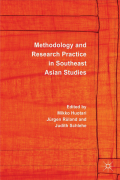 |
|
Schlehe, Judith / Sandkühler, Evamaria (eds) (2014). Religion, Tradition and the Popular. Transcultural Views from Asia and Europe. Bielefeld: transcript. A rapid development of religious popular cultures and lifestyles can be observed across the globe. This book provides unique case studies from Asia and Europe illustrating new religious practices, forms of articulation and mass mediatization, all of which render religious traditions significant for contemporary issues and concerns. The essays examine experiences of spirituality in combination with commercialization and expressive performative practices as well as everyday politics of identity. Based on innovative theoretical reflections, the essays take into consideration what the transcultural negotiation of religion, tradition and the popular signifies in different places and social contexts. With contributions by Anthony Reid, Hubert Knoblauch, Ariel Heryanto, Stefanie von Schnurbein and others. |
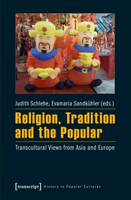 |
|
Rüland, Jürgen/ Manea, Maria-Gabriela/ Born, Hans (eds) (2013). The Politics of Military Reform. Experiences from Indonesia and Nigeria. Heidelberg: Springer. This volume seeks to explain why democratization and military reforms stagnate in newly democratizing countries. The contributions blend historical, ideational, cultural and structural explanatory factors to analyze the trajectories of military reform in Indonesia and Nigeria, two major regional powers that share many structural commonalities. In the tradition of the literature on security sector reform (SSR), the book not only scrutinizes executive initiatives toward military reform, but also provides ample coverage of societal actors. Findings show that while military reform is stagnating in both countries, societal forces ought to be taken into account more as major driving forces in explaining military reform. Several chapters study how legislatures, non-governmental organizations and the civilian defence epistemic community contribute to the transformation of military institutions. The last part of the book tackles another aspect rarely studied in the literature on military reform, namely, the role of militias in military reform. |
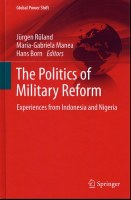 |
|
Rüland, Jürgen / Schubert, Gunter / Schucher, Günter / Storz, Cornelia (eds) (2008). Asian-European Relations. Building Blocks for global governance? New York: Routledge. Interregional Relations are a novel field within international relations which have increasingly been attracting scholarly interest. Thus, over the last five years or so, Interregional Relations has firmly established itself as a research field, initially within political science, and gradually in economics. This volume assesses interregional relations between Asia and Europe. It contributes to the most recent developments in research by providing impressively rich studies to test existing theoretical frameworks. Featured in this volume are conceptual contributions, in particular, theoretically inspired studies which conduct in-depth investigation of a broad variety of interregional interactions, such as the political management of globalisation through interregional co-operation, regional security, human rights and finally, the dialogue between Asian and European NGOs. The economic contributions likewise undertake an extensive assessment of areas such as interregional trade and investment flows, the Asian Development Bank and interregional mergers. Applying established theories to concrete phenomena, Asian-European Relations provides a comprehensive understanding of inter-regionalism and how co-operation between Asia and Europe should be fashioned in the new millennium. The integration of political and economic research in this book will be of interest to graduates and researchers in the fields of international relations, international economics, regional integration, and interregionalism. |
|
|
Hoadley, Stephen / Rüland, Jürgen (eds) (2006). Asian Security Reassessed. Singapore: Institute of Southeast Asean Studies. This book traces changes in the concept of security in Asia from realist to cooperative, comprehensive, and human security approaches, and assesses a number of policy alternatives to management of both old and new security threats. It surveys not only orthodox security threats such as tensions between regional powers or armed ethnic antagonists but also new sources of anxiety such as resource scarcity, economic instability, irregular migration, community fragmentation, and international terrorism. Security policies of major powers such as China, Japan, and the United States, and the moderating roles of regional organizations such as ASEAN, ARF, SCO, and KEDO are evaluated in historical and contemporary perspectives. Contributors proffer policy-relevant insights where appropriate. The book concludes that traditional security approaches remain valid but need to be adapted to the new challenges, and offers suggestions for incorporating fresh Asian security perceptions into the agendas of policy-makers, analysts, and scholars.
"Overall, the book achieves its goals and the reader is provided with an insightful, clearly written, and hig-quality assessment of Asian security. The editors, along with the contributors, are to be congratulated on their excellent work." — Paul Bellamy, New Zealand International Review
"In conclusion, Asian Security Reassessed is a superb overview of regional security affairs and an indispensable addition to the reading list of any university course on IR/ Security Studies." — Thomas S. Wilkins, Pacific Affairs (Read Full Review here) |
|
|
Hänggi, Heiner / Roloff, Rolf / Rüland, Jürgen (eds) (2006). Interregionalism and International Relations. London: Routledge. Over the last two decades, globalization and regionalization have led to the emergence of an increasingly differentiated multi-level system of global governance. One characteristic of this system is the growing level of interaction among regional organizations and groups of states, and the interregional relations constitute a novelty in international relations, one that varies greatly in form, in function and in level of institutionalization. Interregionalism and International Relations is the first attempt to summarize the state of the art in this rich new field of international relations. It provides a comprehensive, theory-guided introduction into the numerous facets of this new phenomenon. Following a theoretical explanation d a typology interregional relations, subsequent parts of the book examine key interactions between major world regions such as Asia and America, Asia and Europe. America and Europe, and Africa and Europe. This book also presents comparative analyses and borderline cases that transcend the standard manifestations of interregionalism. With high-level contributors noted for their expertise in international relations and interregionalism, this volume will appeal to scholars of political science, diplomats and those with an interest in global and regional diplomacy.
"In sum, I applaud the editors' ambition in extending their reach into this uncharted territory with this very wide coverage, and I hope many complementary research projects striving for depth and a more systematic comparision of those inter-regional institutions will follow shortly." — Saori N. Katada, Pacific Affairs |
|
|
Rüland, Jürgen / Manske, Eva / Draguhn, Werner (eds) (2002). Asia-Pacific Economic Cooperation (APEC). The First Decade. London: Routledge Curzon. The Asia-Pacific Economic Cooperation (APEC) was founded in 1989. Since then the forum has developed into a major player in tri-partite relations between North America, East Asia and Europe. The Seattle and Bogor Summits were landmark events suggesting to many observers a gravitational shift in the world economy and world politics. Yet the Asian financial crisis had a sobering effect on high-flying expectations as APEC contributed little to crisis management. In the light of such contradictory performance, distinguished scholars here examine APEC's achievements and failures, its role and functions in international relations, its linkages with regional organisations and the interplay between the forum and national interests of major factors in the region. |
|


